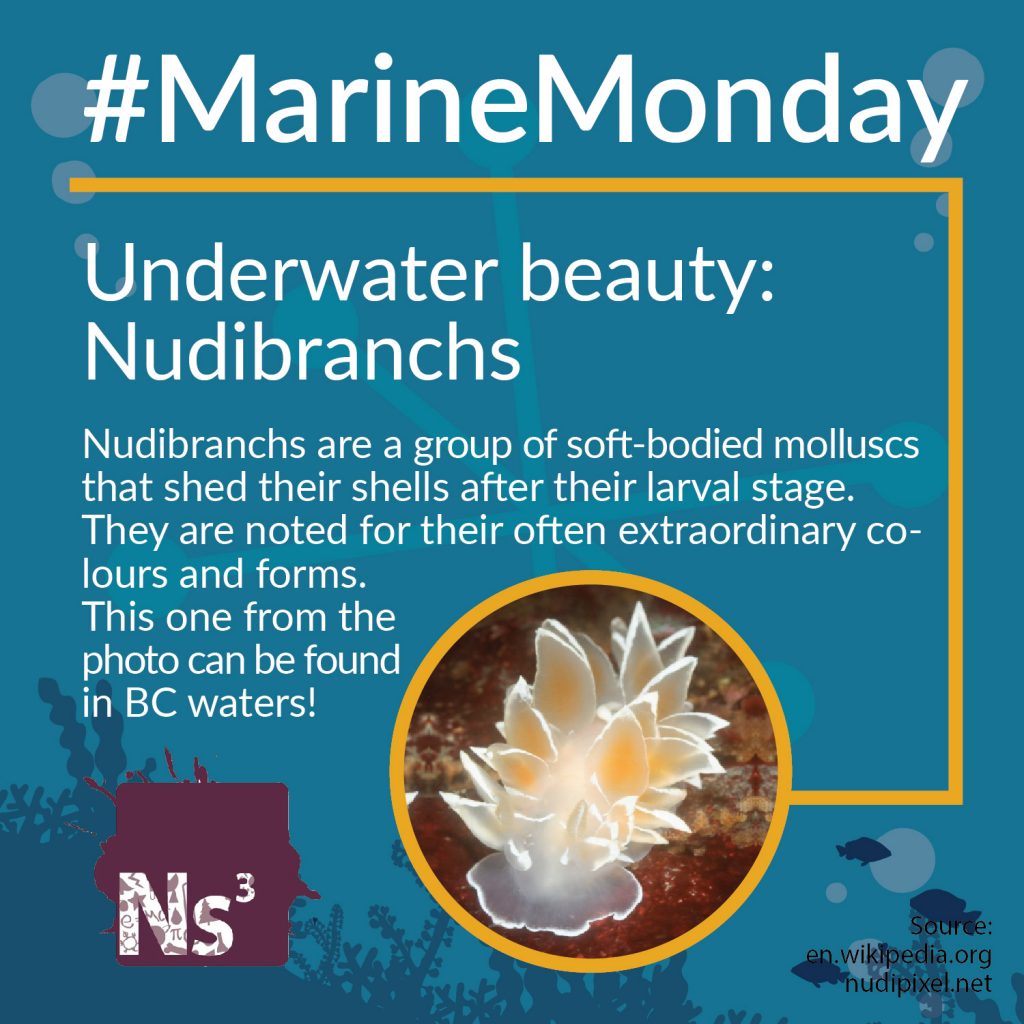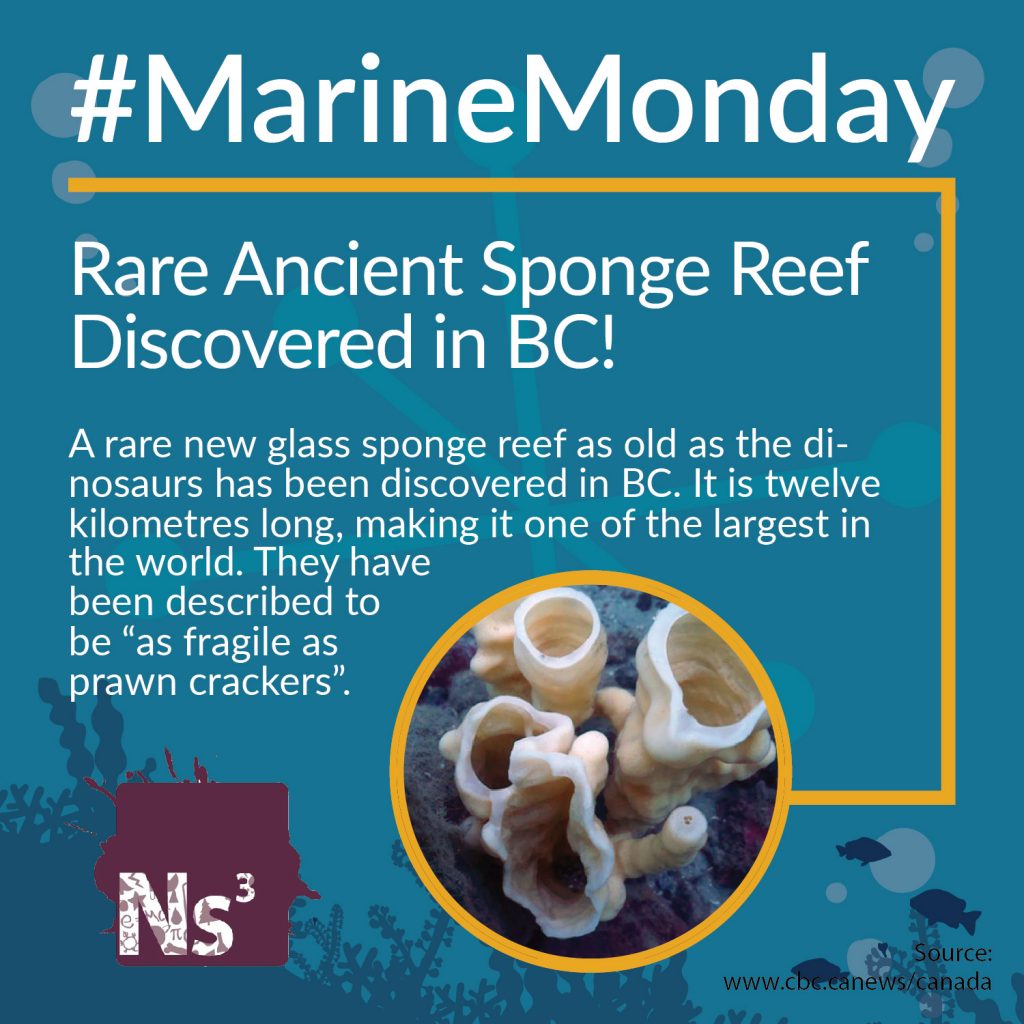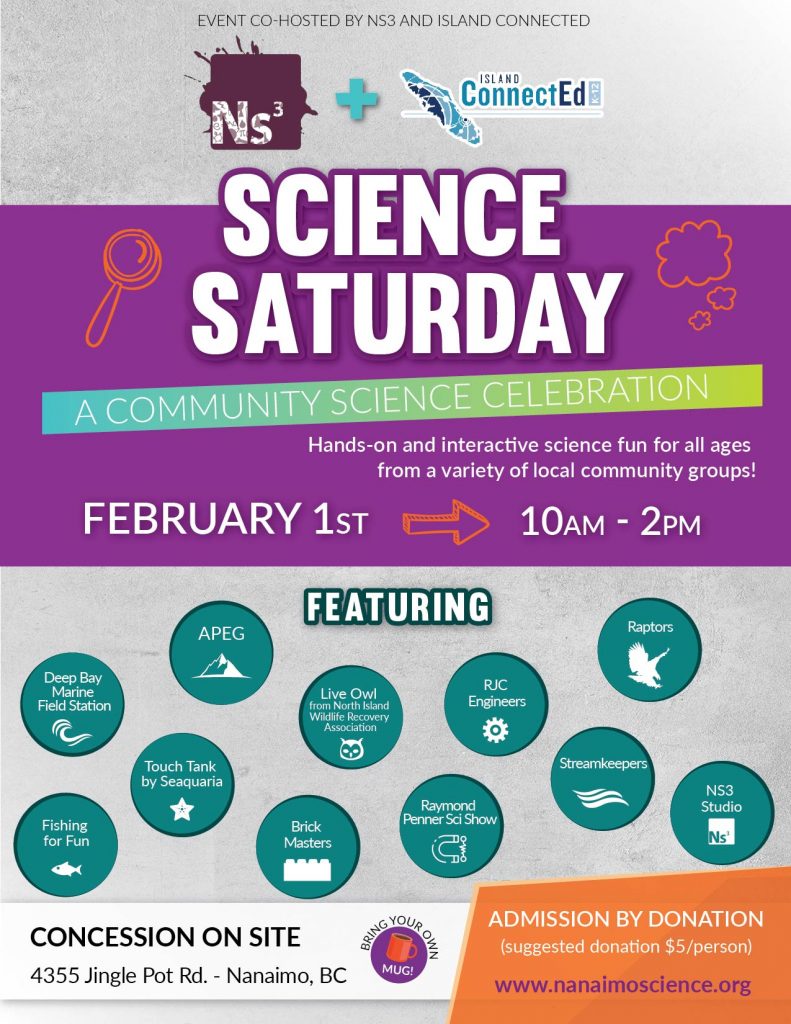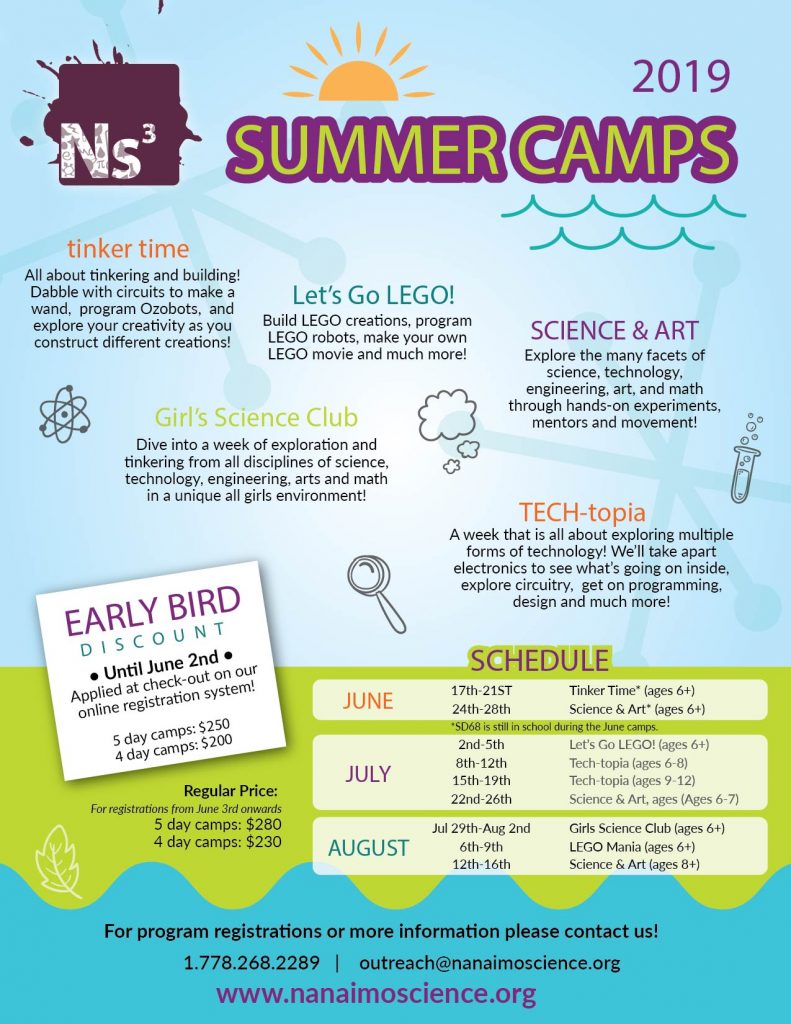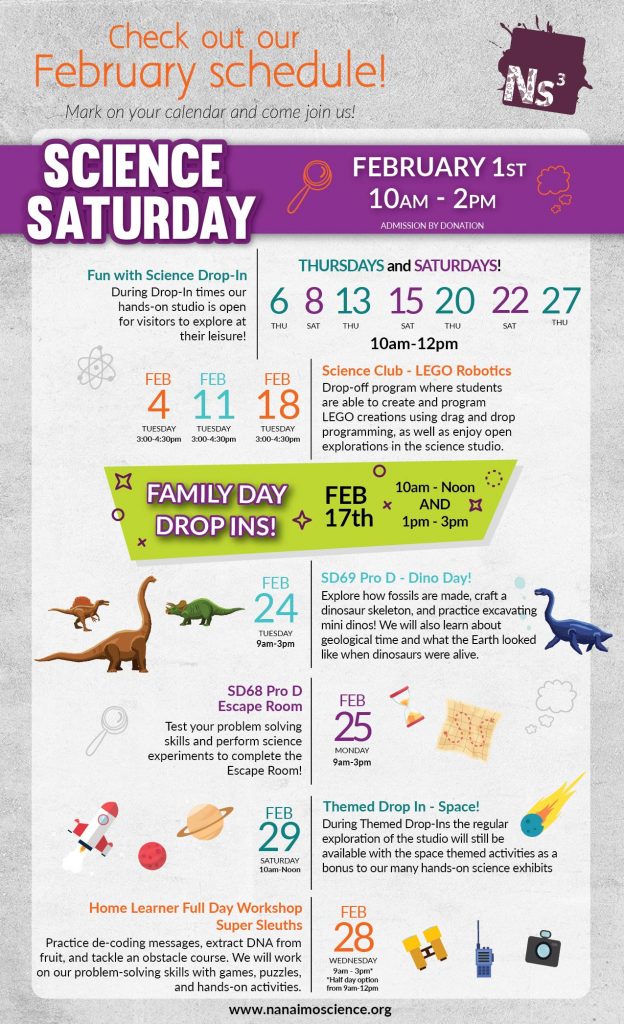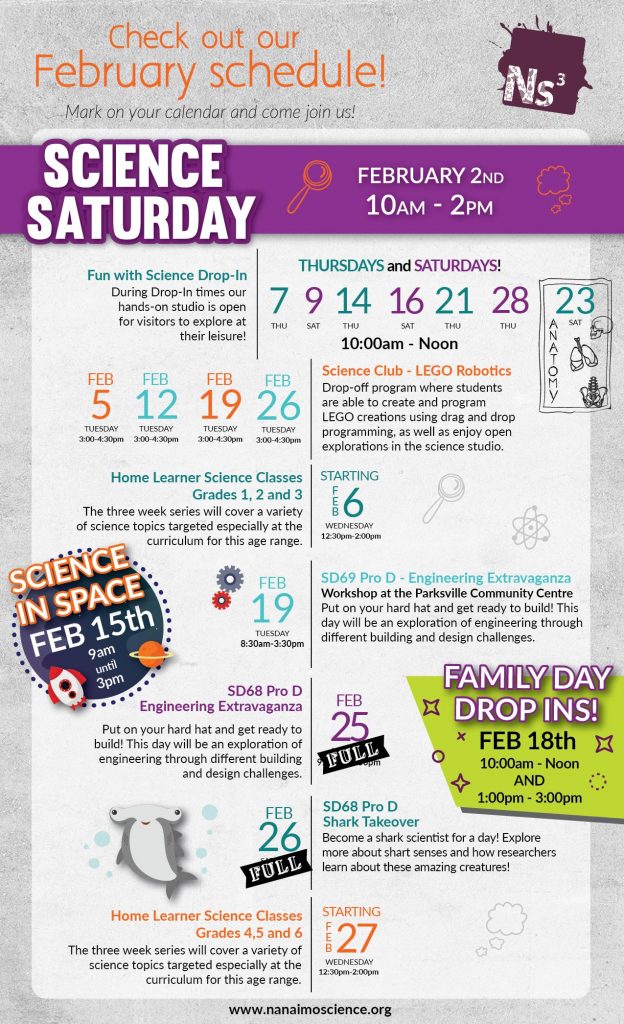4th year student of Bachelor of Science
Biology Minor / Fisheries & Aquaculture Minor
Vancouver Island University, Nanaimo, Canada
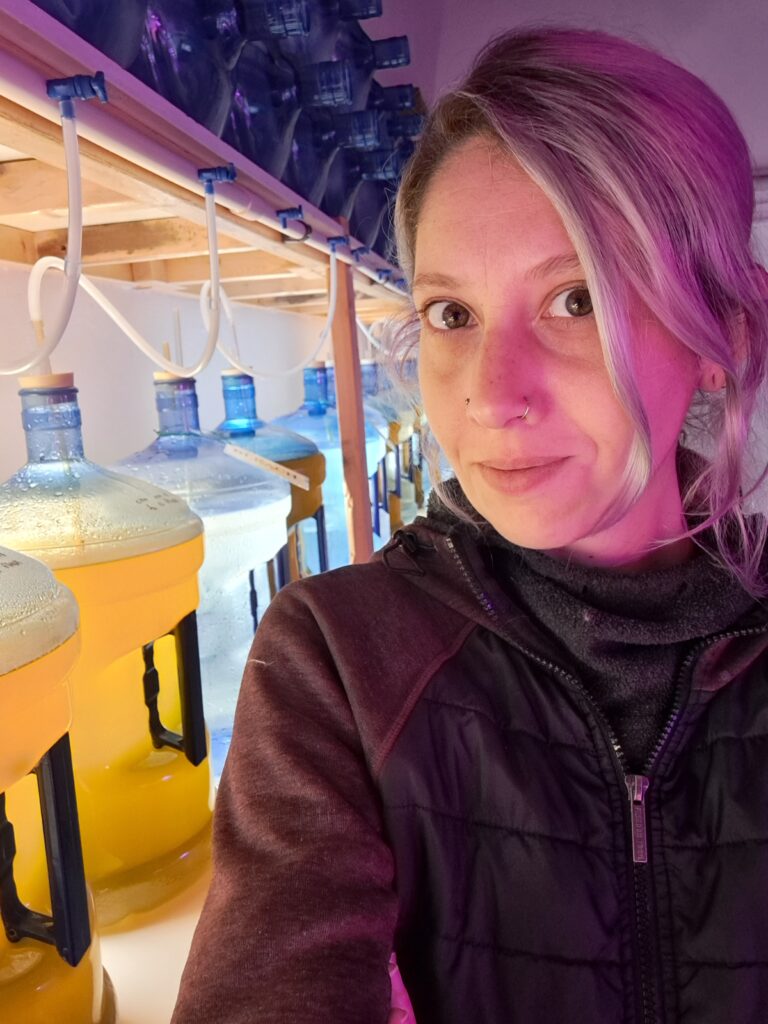
Island Scallops – May 2024 to present
Aquaculture Technician
Full-time work at a large scale hatchery. Main tasks include monitoring of microalgae culture in the wet lab, growing different species of phytoplankton, making nutrients and keeping record of daily use and distribution of microalgae. Other tasks include monitoring of broodstock, cleaning equipment and tanks.
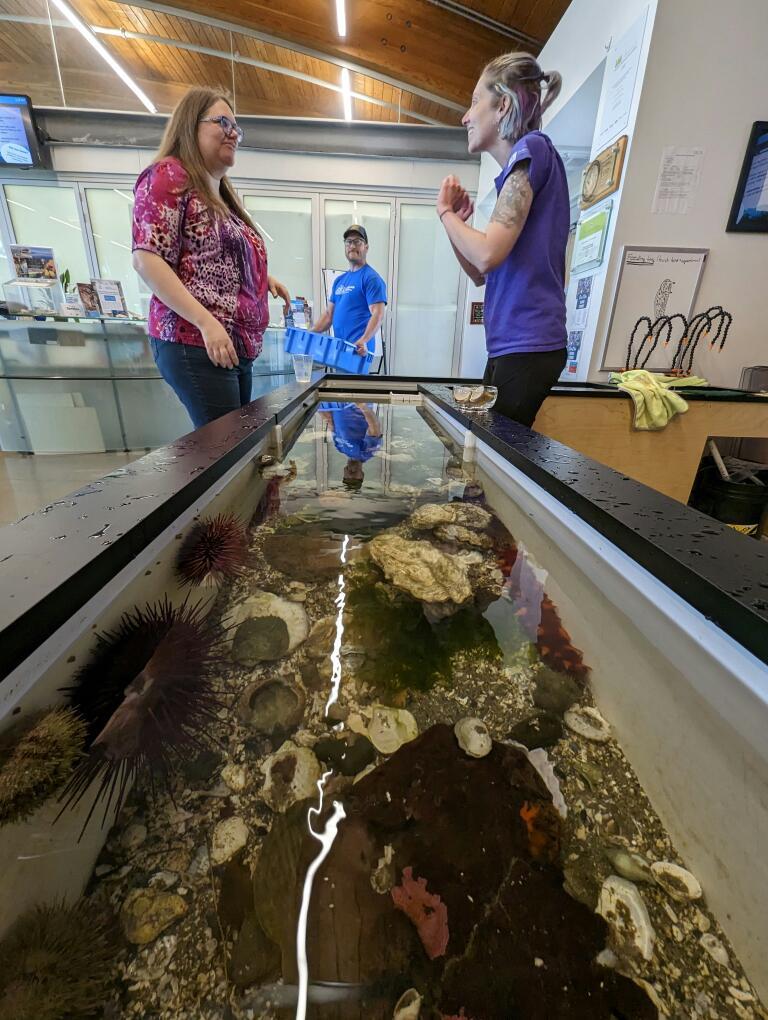
Deep Bay Marine Field Station – Summer 2023
Educational Outreach/Public Education
Full time work during Summer 2023. Responsible for opening administrative duties, cashing in and out and preparing the station to for visitors. Guide visitors throughout the station showing the facilities, what is available to them, taking about the two whale skeleton exhibits as well as the Selective Breeding Research, led by Professor and Dr. Tim Green from Vancouver Island University. Ensured the animals at the touch tank are being properly handled, explained physiological characteristics of the animals to the public. Participated in events such as the Beach Day fair in Qualicum Beach, snorkelling collection days and invertebrate identification. I’ve also created an educational infographic on diatoms and illustrations of the five phytoplankton grown in the labs to feed the oyster larvae.
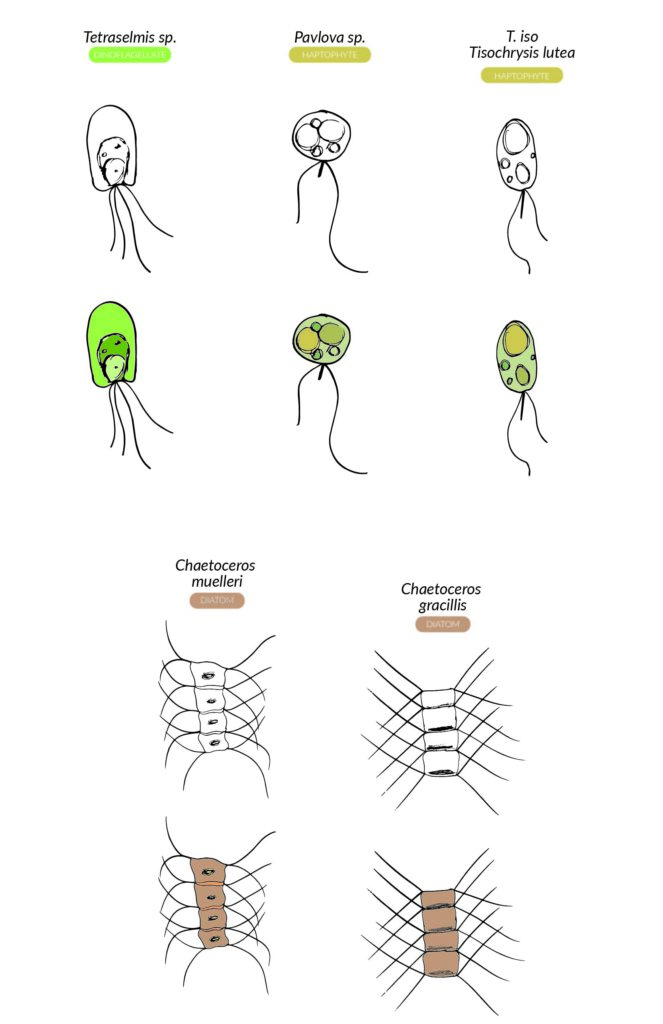
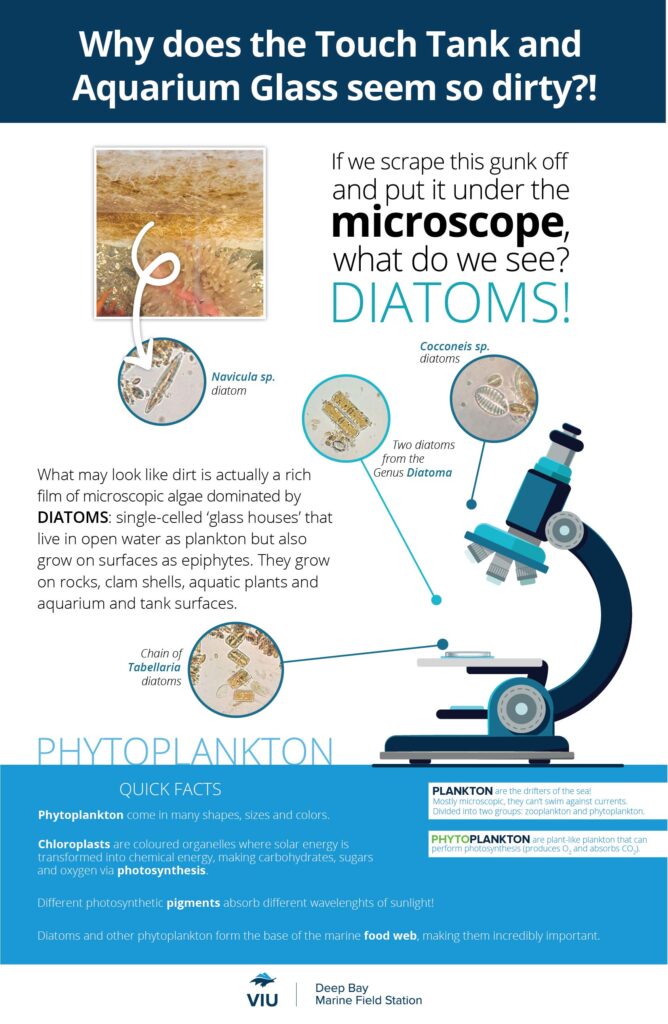
Fed the invertebrate aquariums regularly, shucking bivalves (oysters, mussels, scallops and other clams), defrosting mysiids (shrimp-like crustaceans) and collected seaweed (Fucus sp., Ulva sp., Saccharina latissima, Sargassum sp., etc).
Worked on science literacy activities and materials for kids, such as a plankton weekend exploration, where students created their own homemade miniature of a plankton tow net.
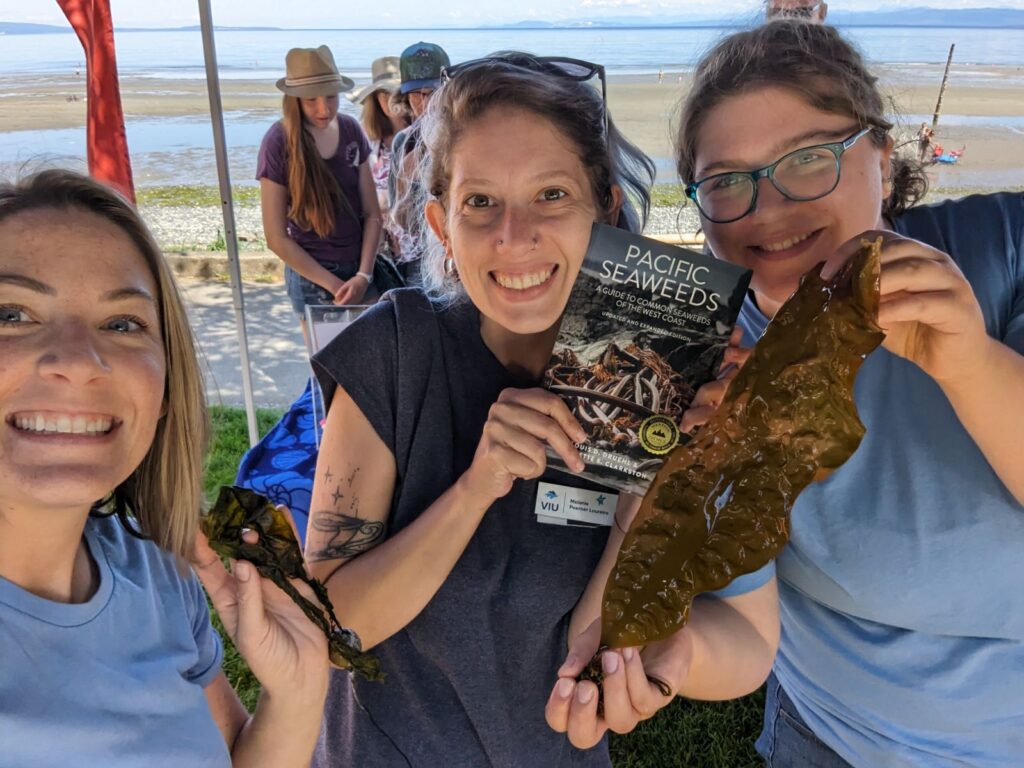
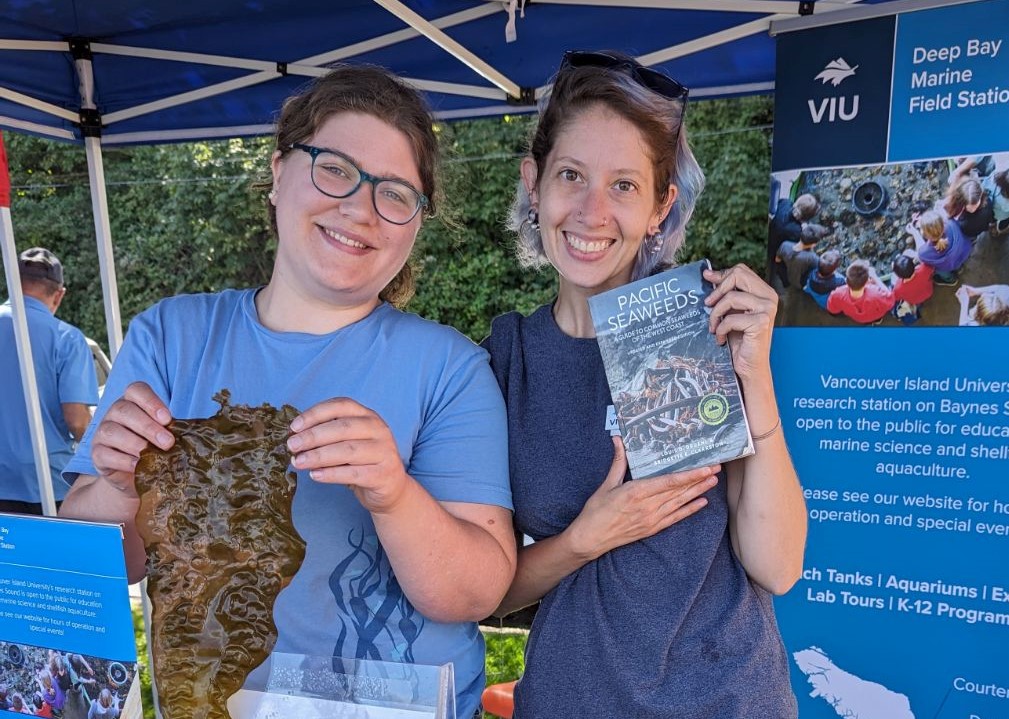
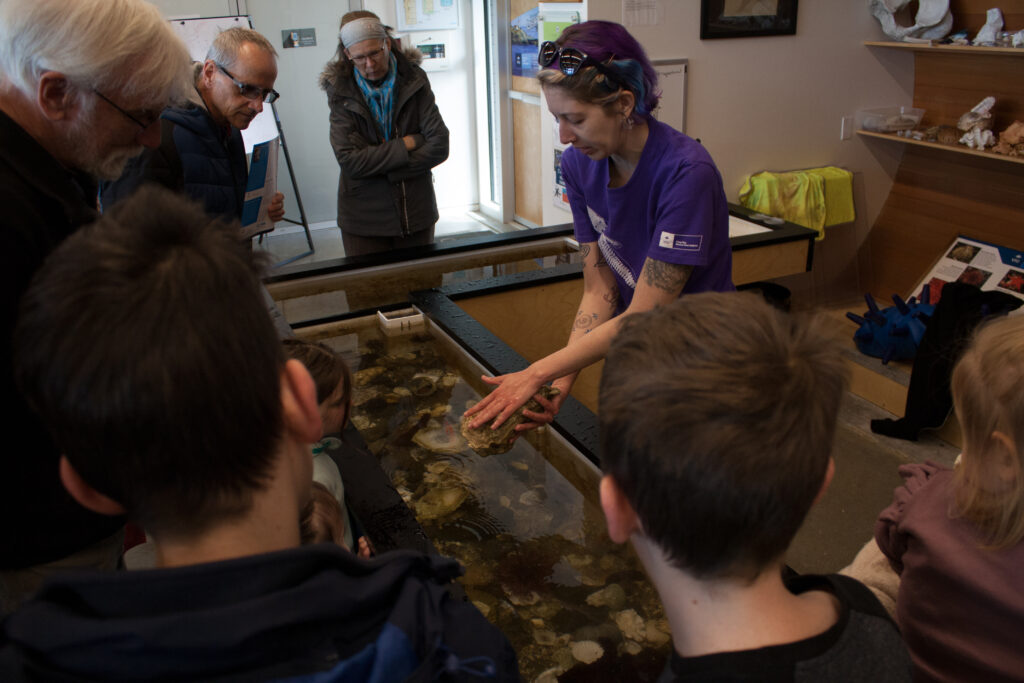
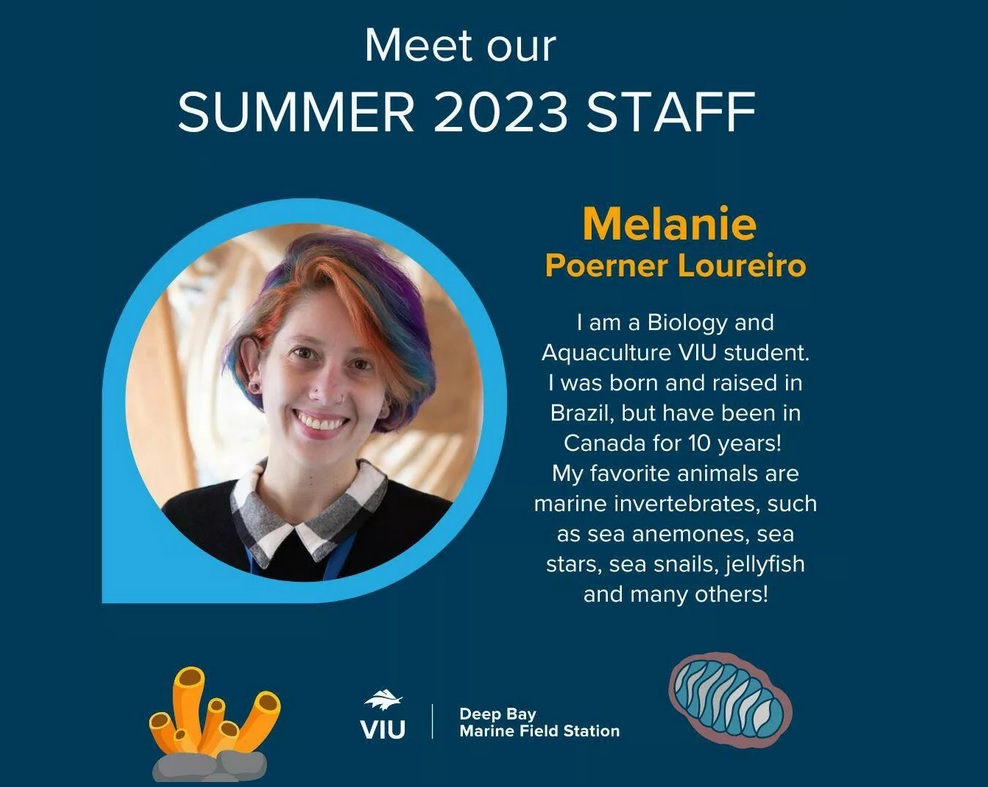
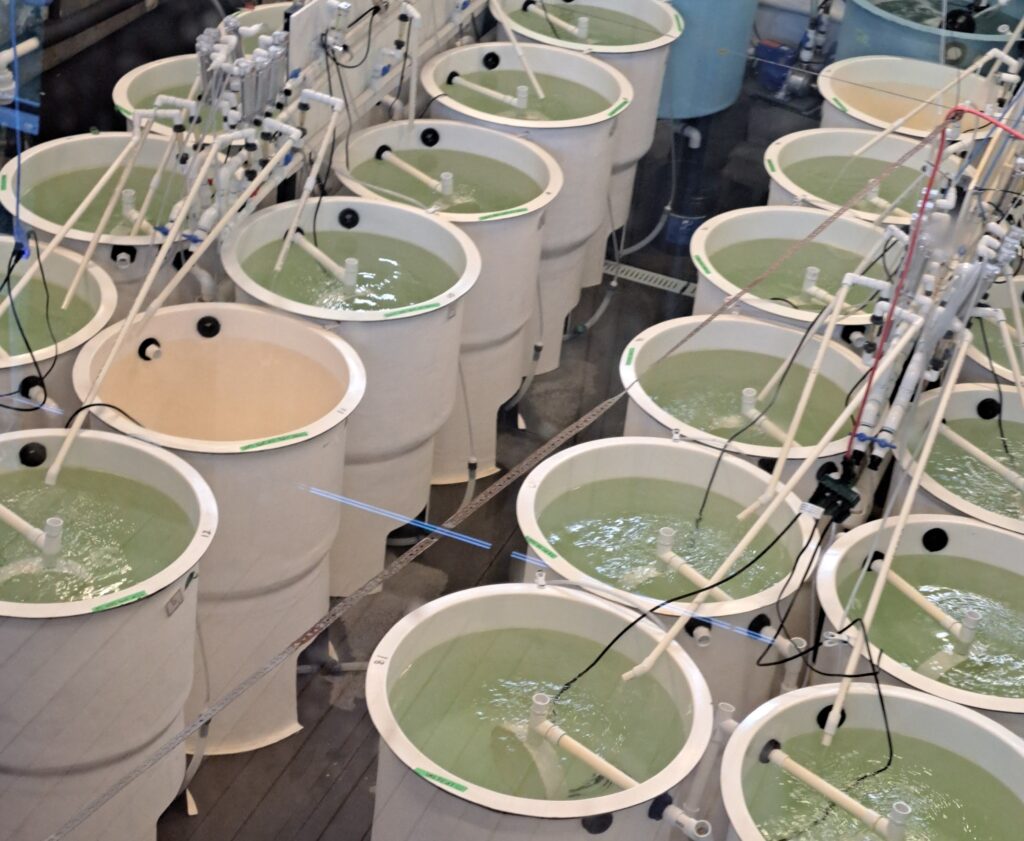
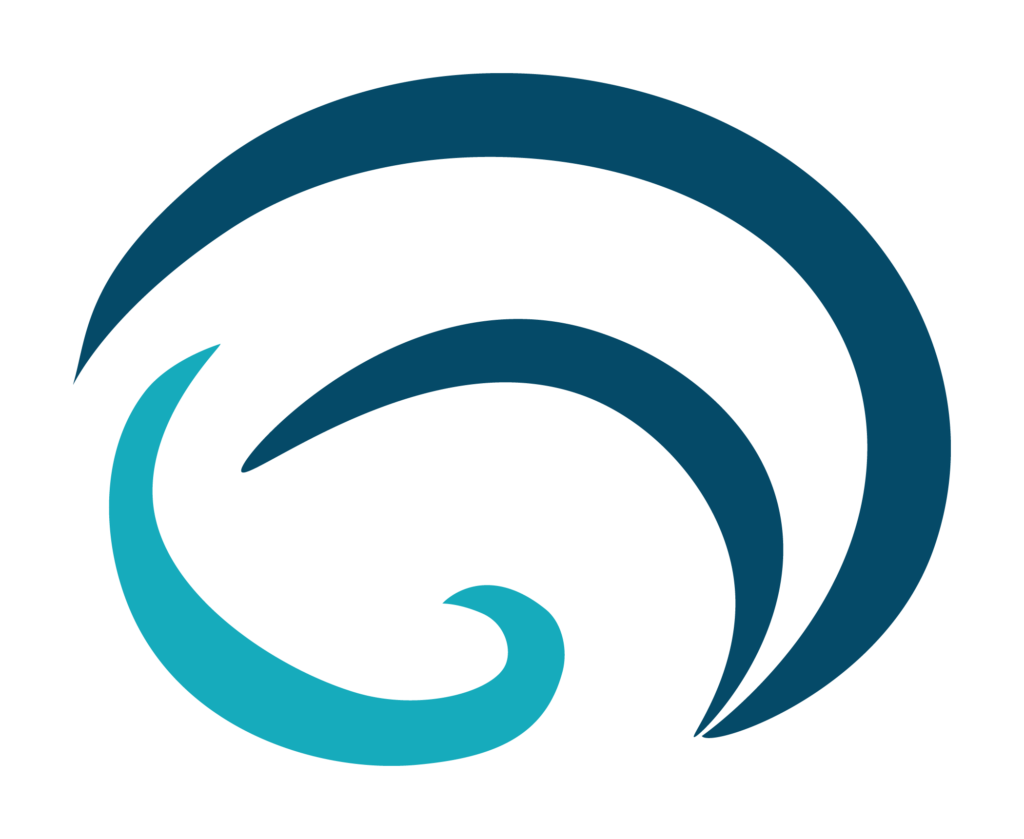
Centre for Seafood Innovation (VIU)
& T. Buck Suzuki Foundation – Spring 2023
Seafood Business Accelerator Assistant
Assisted in the marketing and advertising the Seafood Business Accelerator (SBA) event at the Deep May Marine Station in March and April 2023. Infographic created by me below.
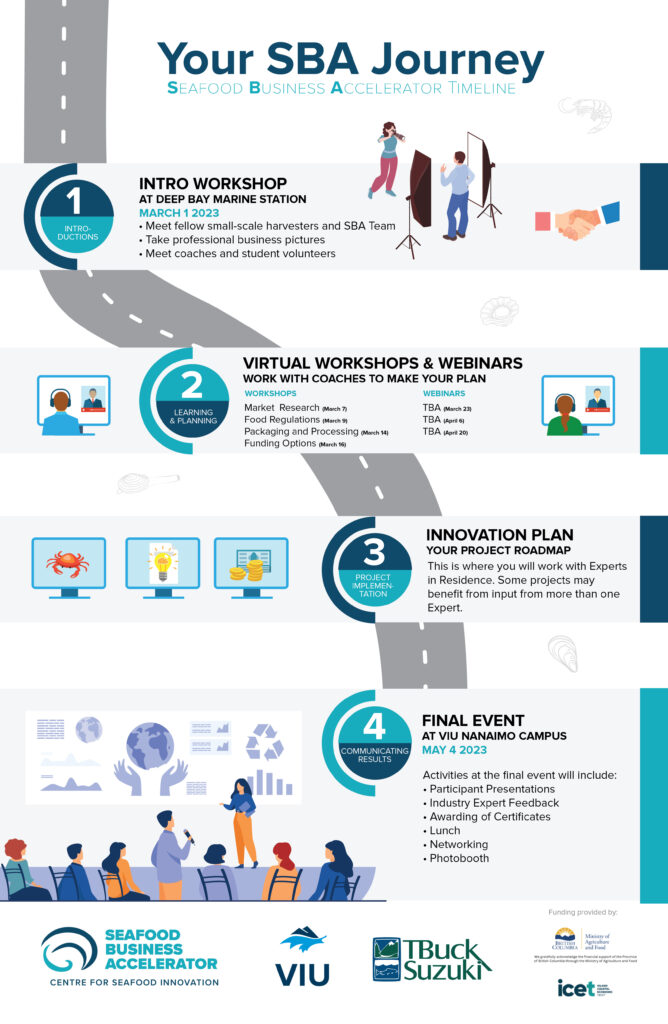
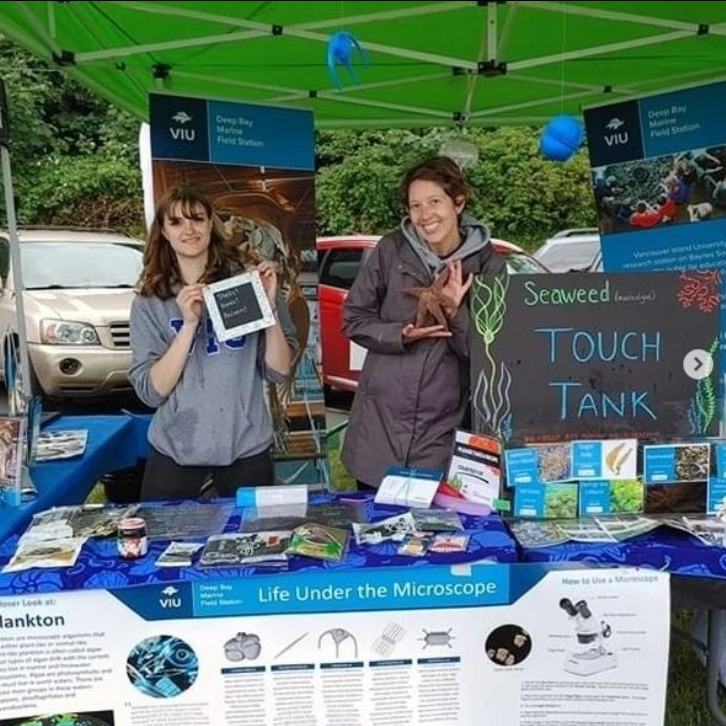
Deep Bay Marine Field Station – Summer 2022
Educational Outreach/Public Education
Full time work during half of Summer 2022. Responsible for opening administrative duties, including answering emails, cashing in and out and preparing the station for visitors. Guide visitors throughout the station showing the facilities, what is available to them, and also taking about the two whale skeleton exhibits. Ensuring the animals at the touch tank are being properly handled, explain physiological characteristics of the animals to the public, amazing them with evolution’s own incredible adaptations. Participated in events such as the Beach Day fair in Qualicum Beach, and the Mini Science Fair at the Deep Bay Marine Field Station.
Fed the invertebrate aquariums occasionally, shucking bivalves (oysters, mussels, scallops and other clams) or defrosting mysiids (shrimp-like crustaceans). Had the opportunity of working at Deep Bay’s oyster farm, which are studied in the Selective Breeding Research, led by Professor and Dr. Tim Green from Vancouver Island University. The research focuses on increasing the resistance of shellfish to the ocean, specially annual heat waves and ocean acidification.
Worked on science literacy activities and materials for kids, such as the Food Chain game as well as resin petri dishes to be looked at under the microscope.
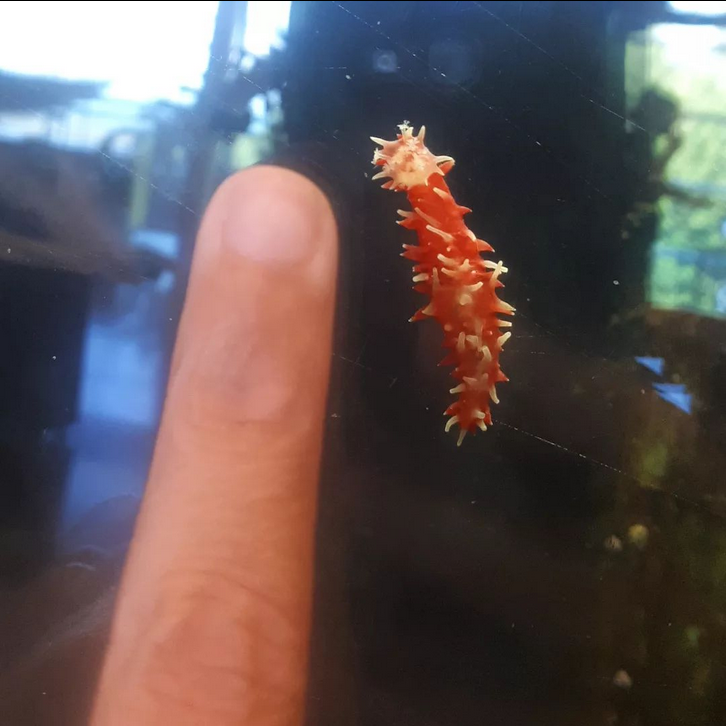
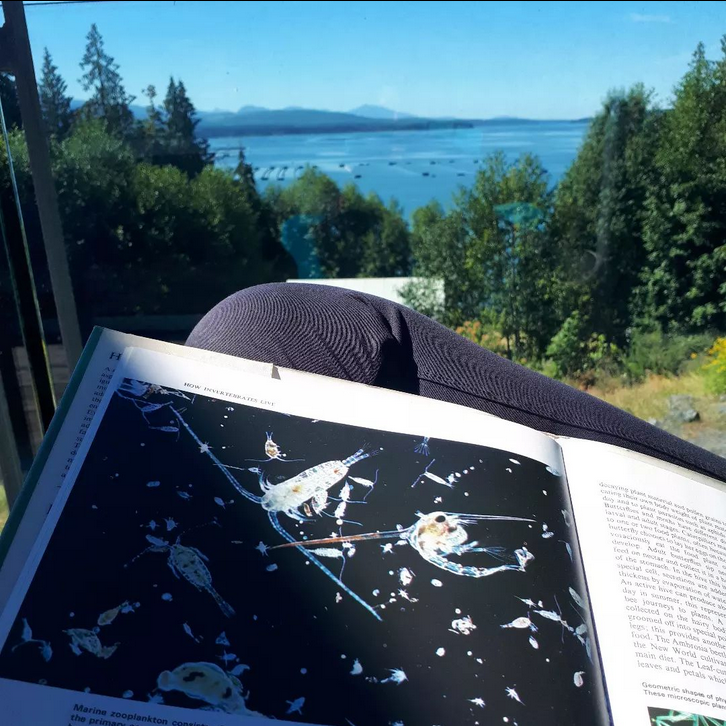
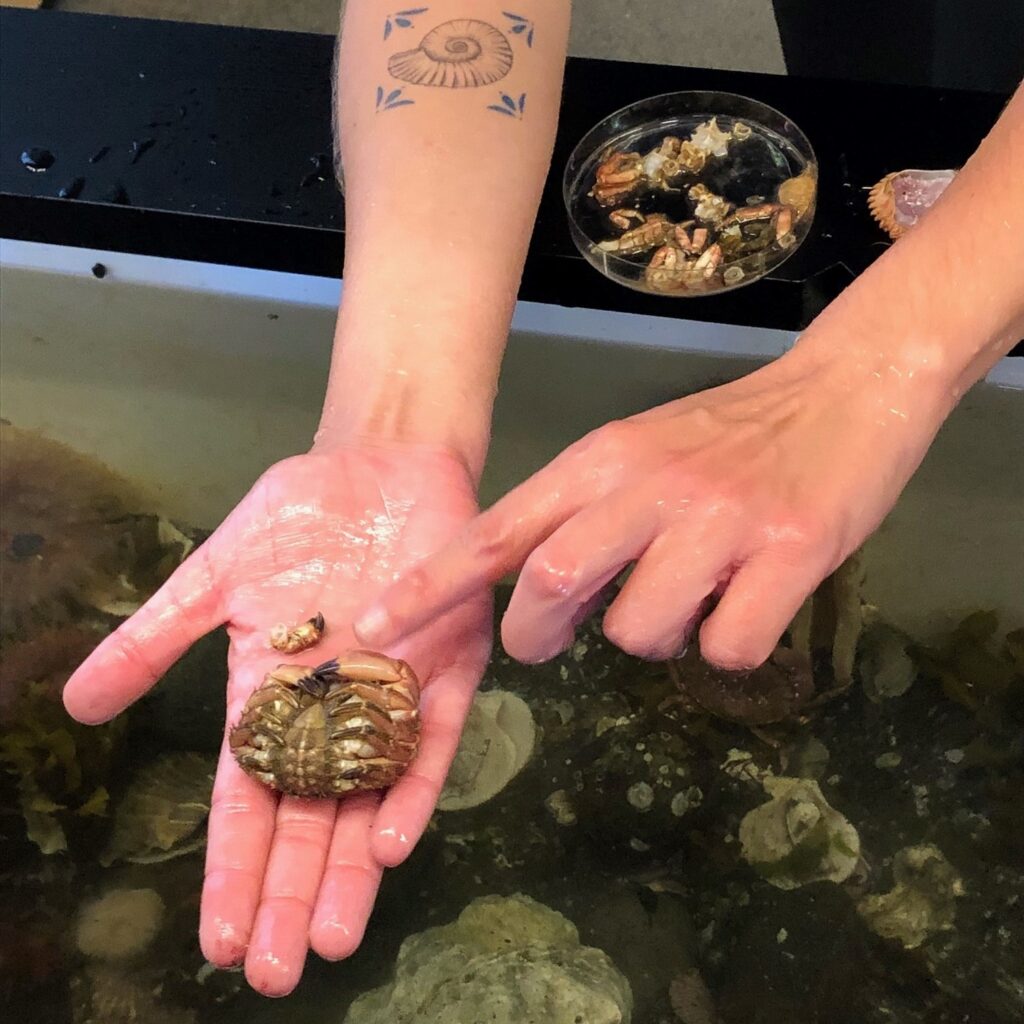
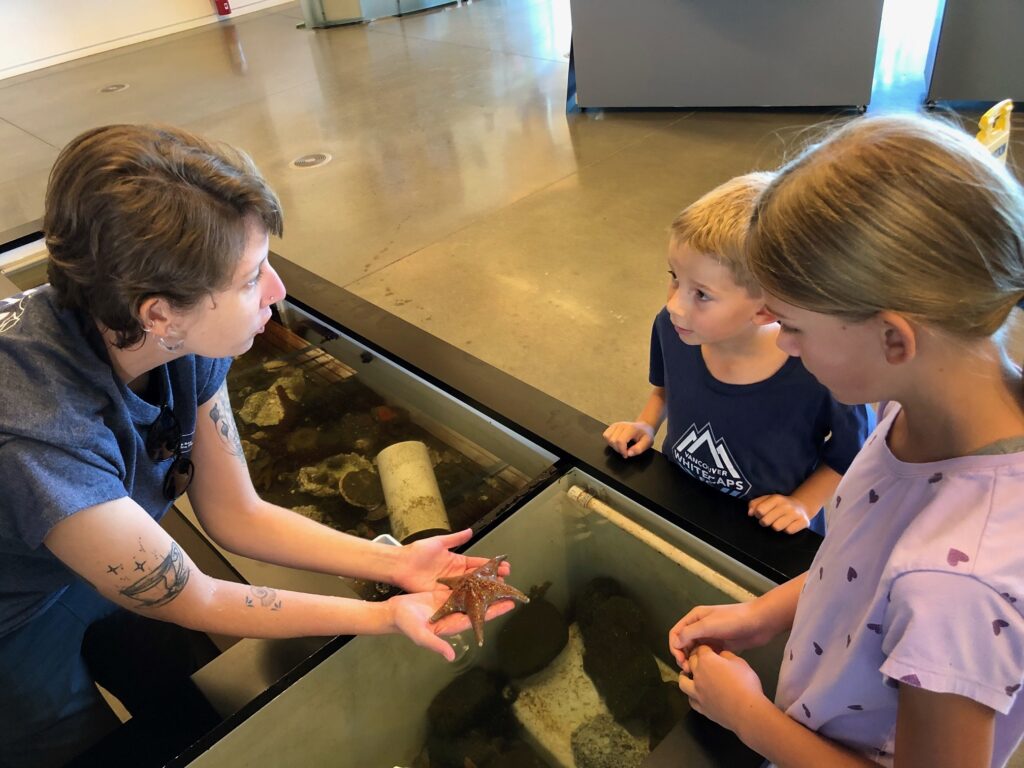
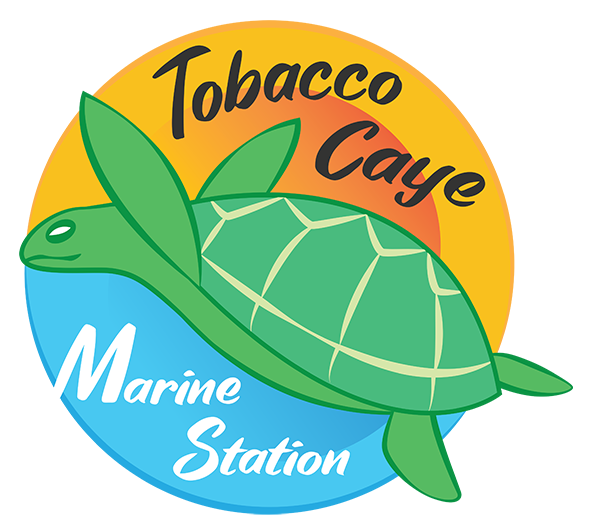
Queen Elizabeth Scholarship Award – Summer 2022
Building Resilience in Coastal Communities Program
International Internship Experience at Tobacco Caye Marine Station in Belize in the Summer of 2022.
Click below to open full page with images and complete information!
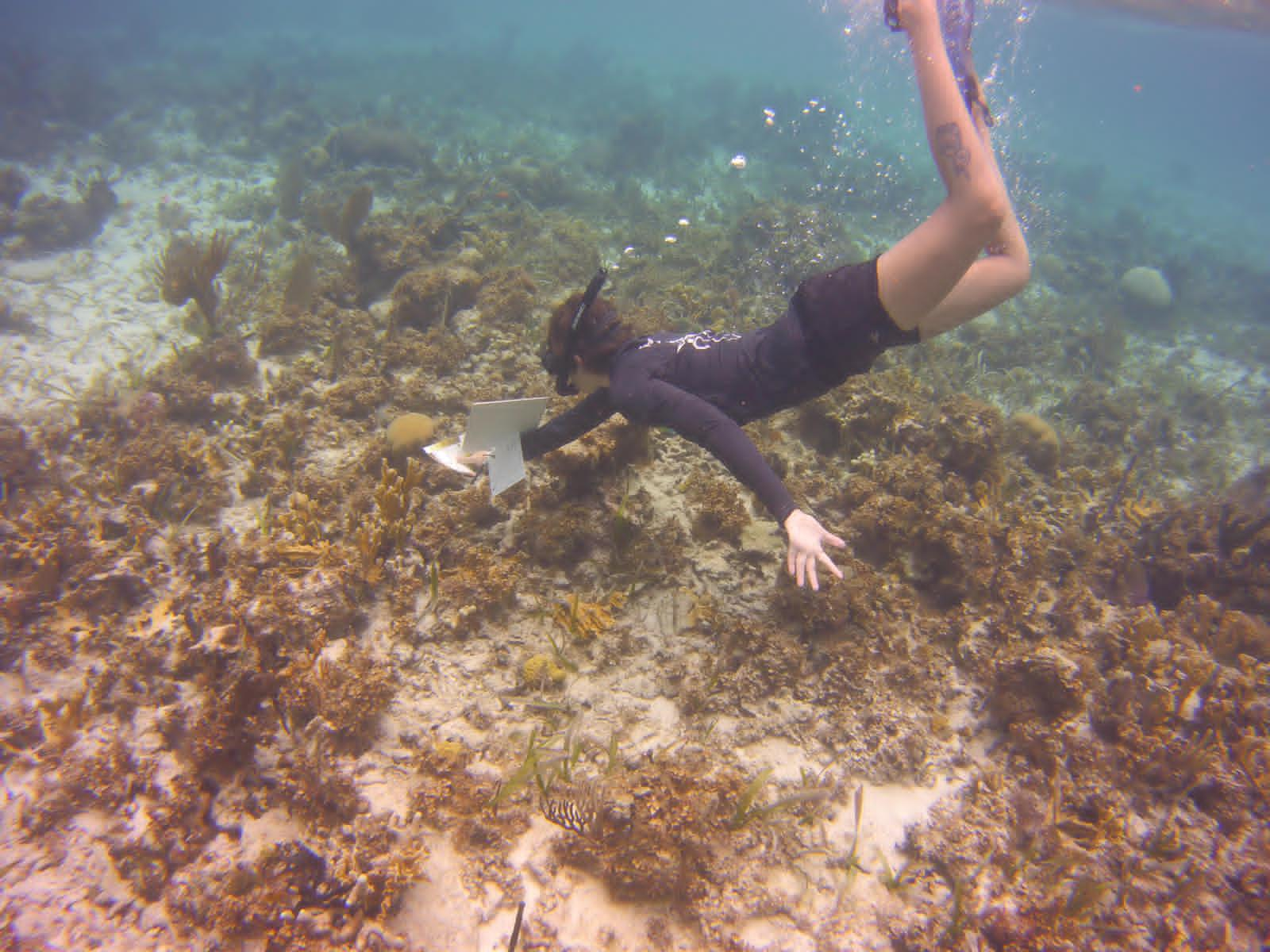
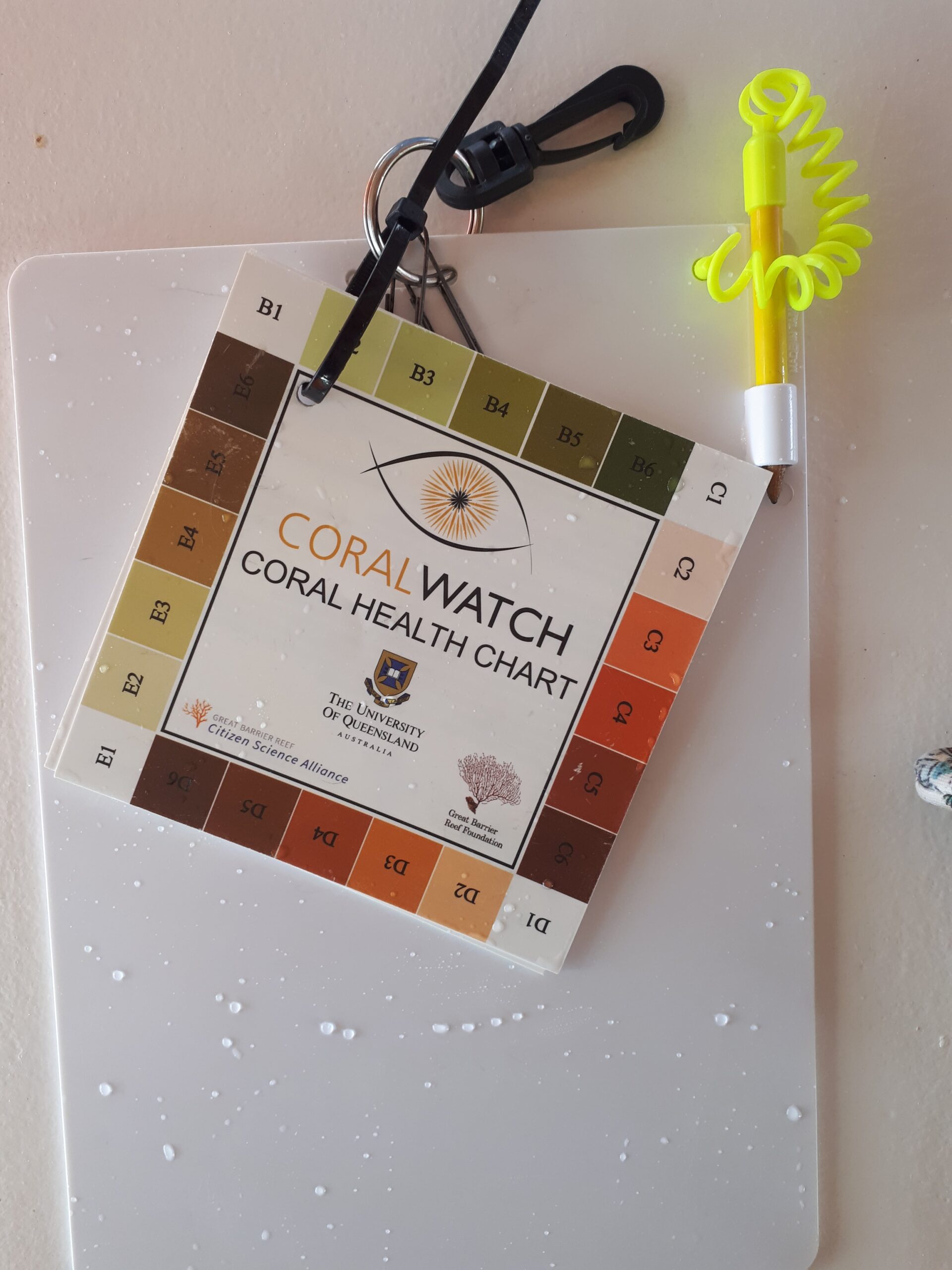
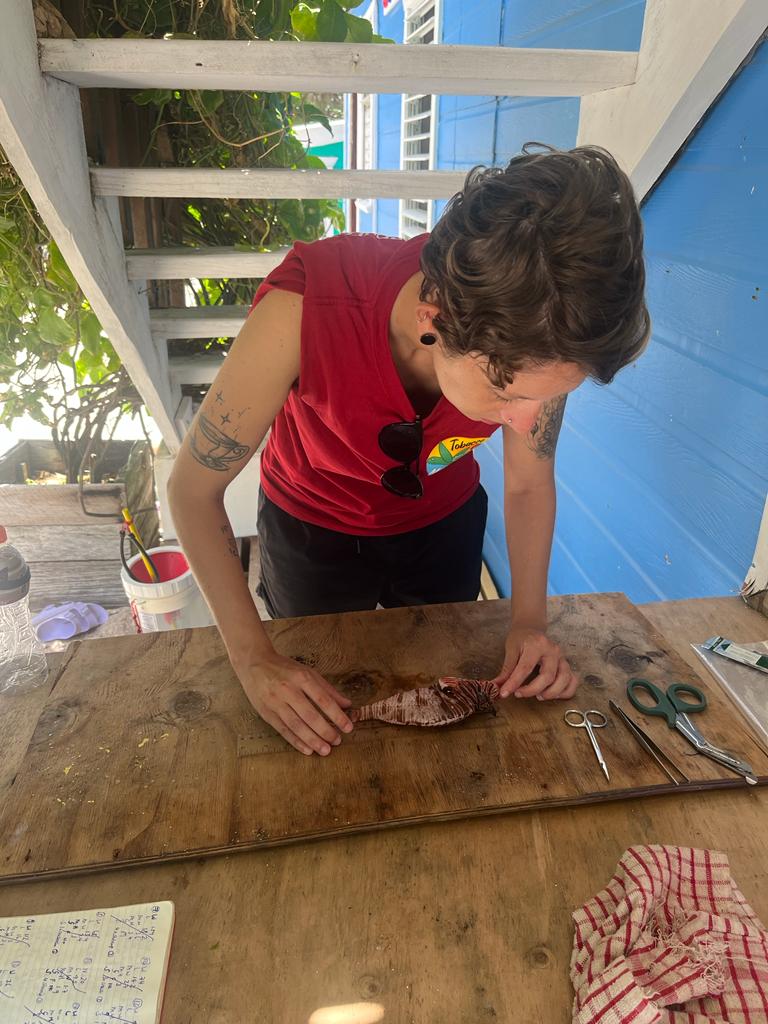
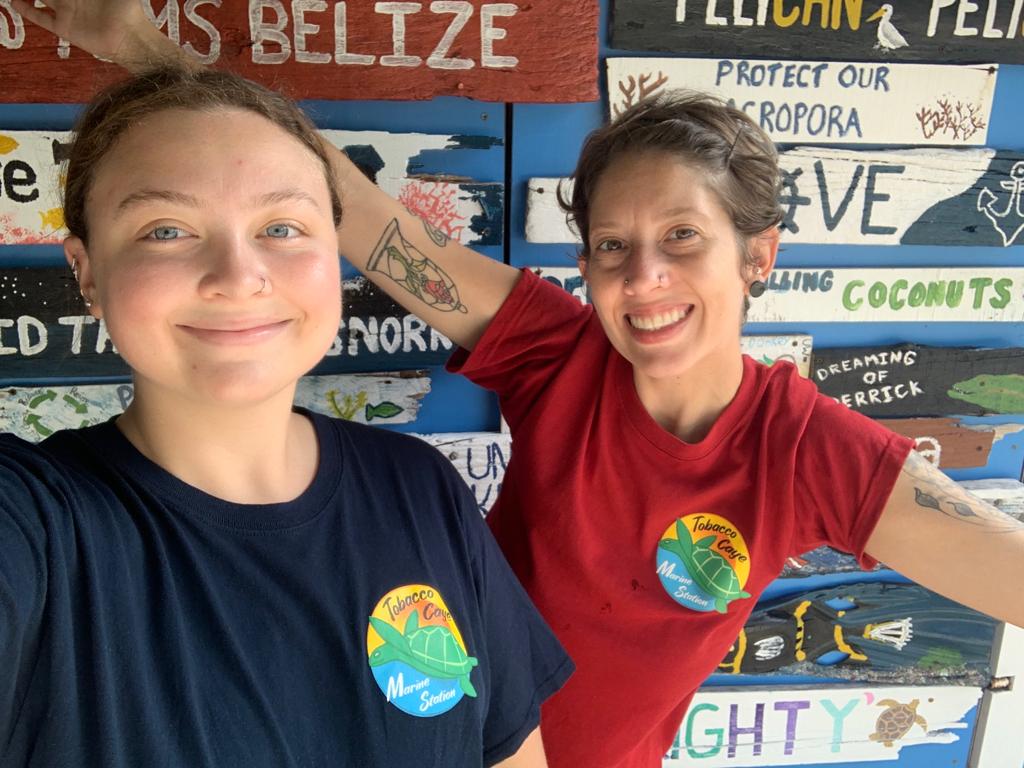
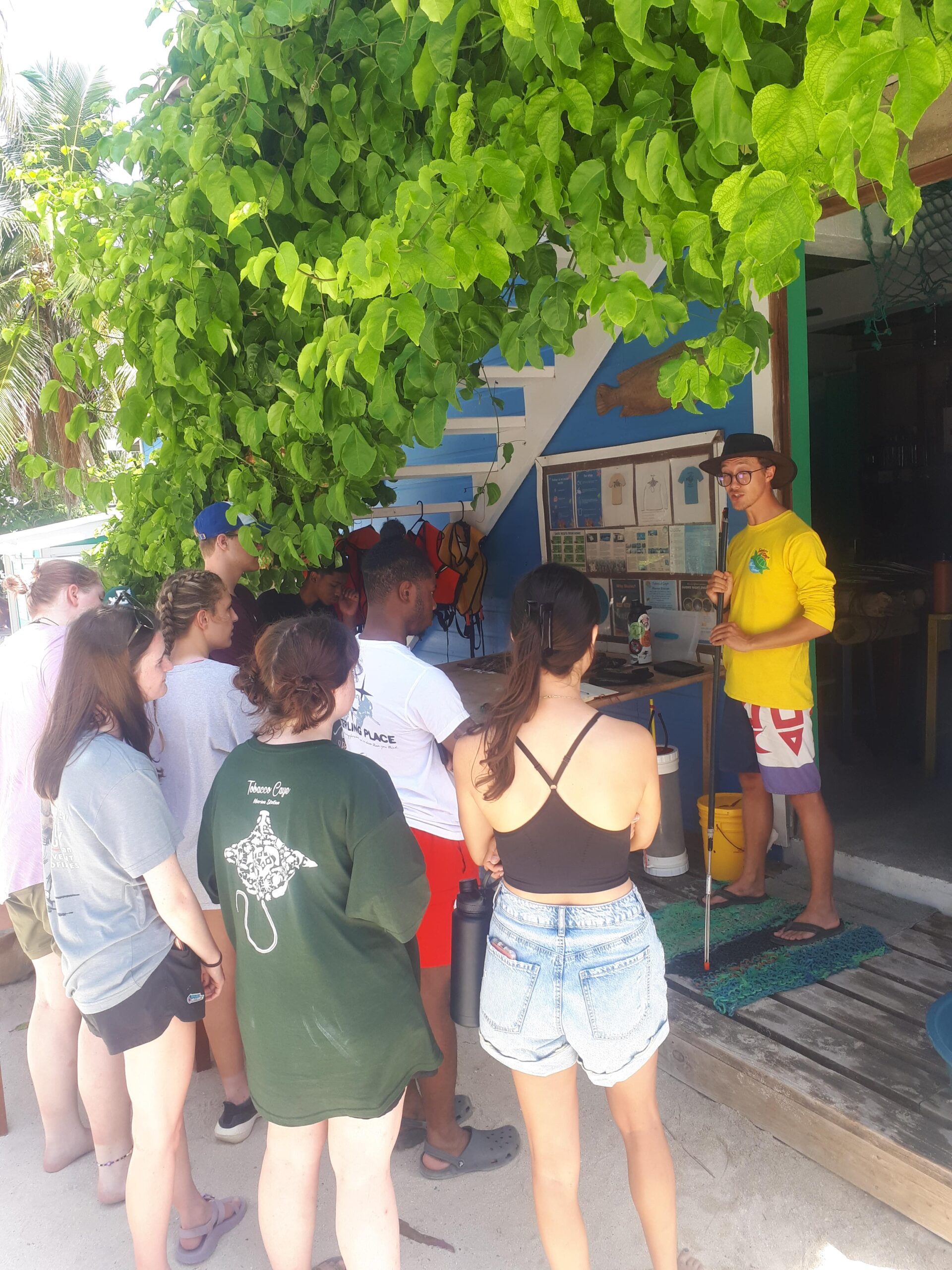
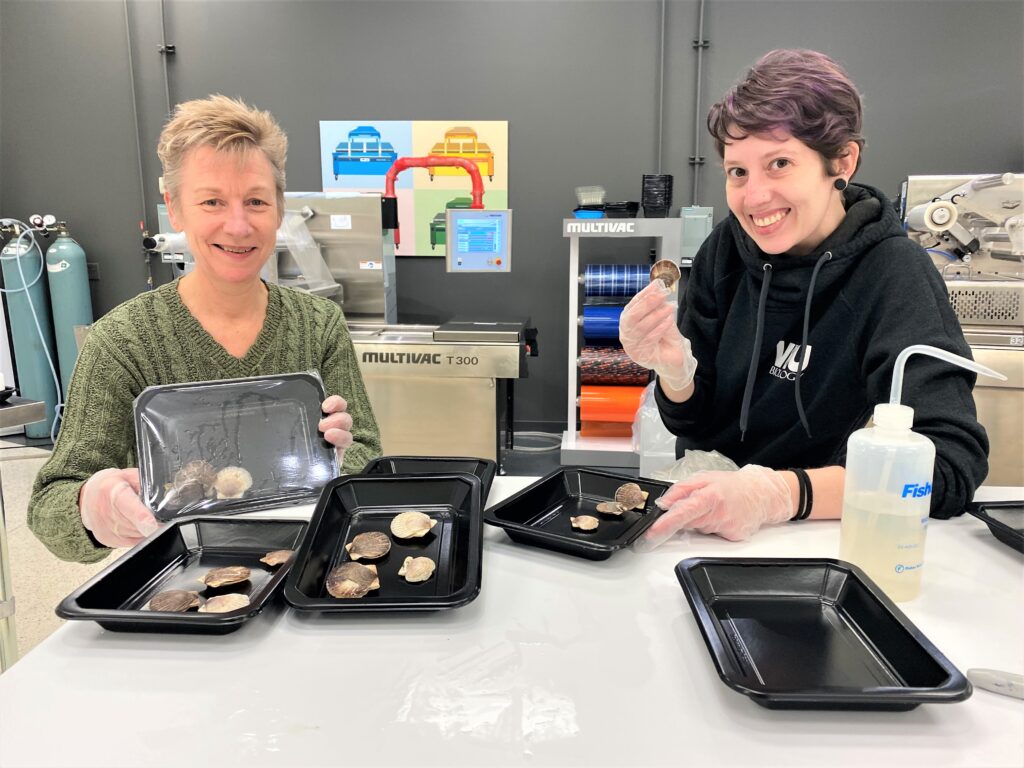
Centre for Seafood Innovation – Spring 2022
Research Assistant
Part-Time work during the Spring Semester of 2022, working remotely as a Research Assistant looking into the extension of shelf life of live scallops using Modified Atmosphere Packaging (MAP) method, where the air content inside the package is changed in order to enhance the scallop’s survival.
A formal research was conducted, including literature review and data collection.
At the end of the research, I gave a presentation at the Let’s Talk Seafood & Eat It Too at Deep May Marine Station, where several attendees tasted a delicious dish made with scallops.
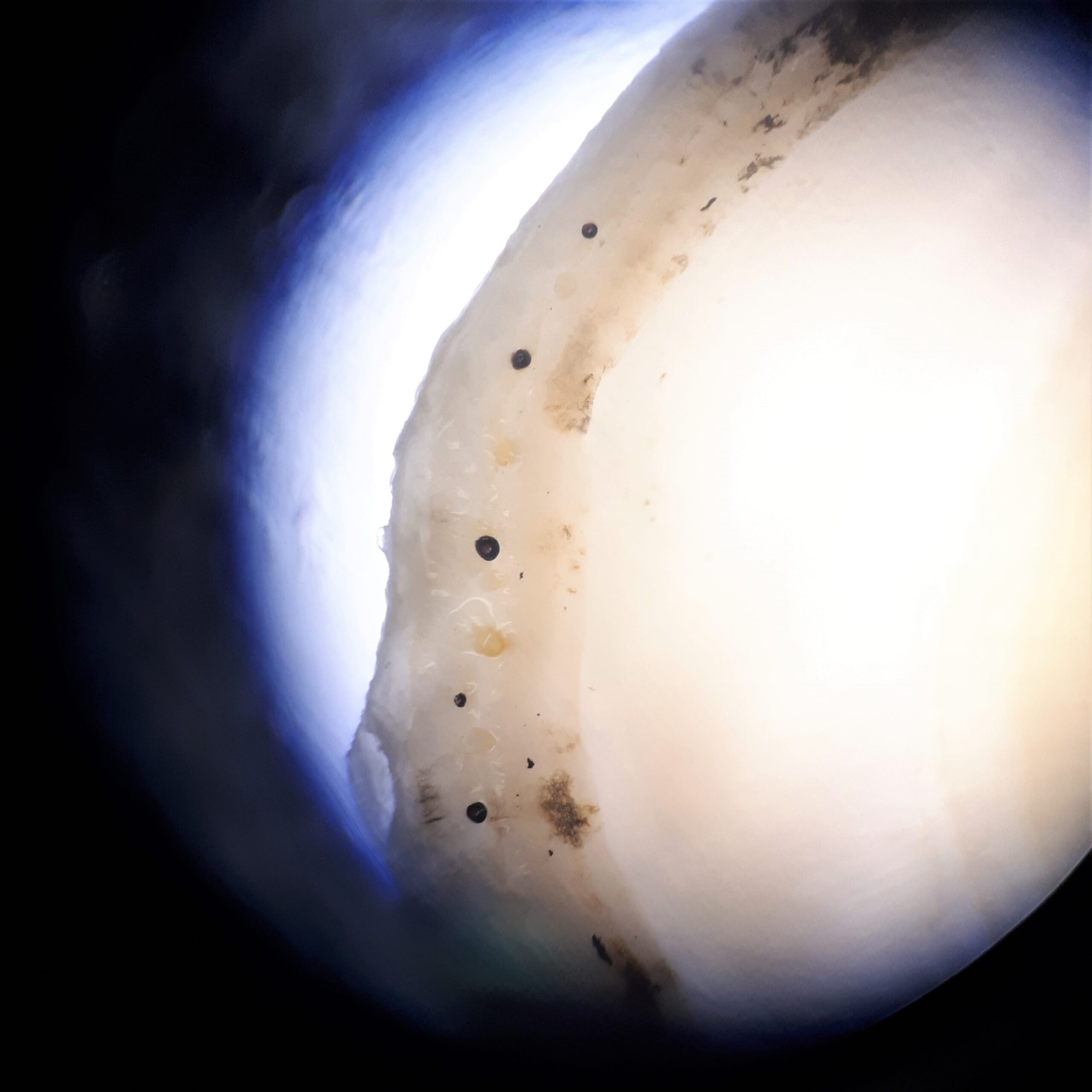
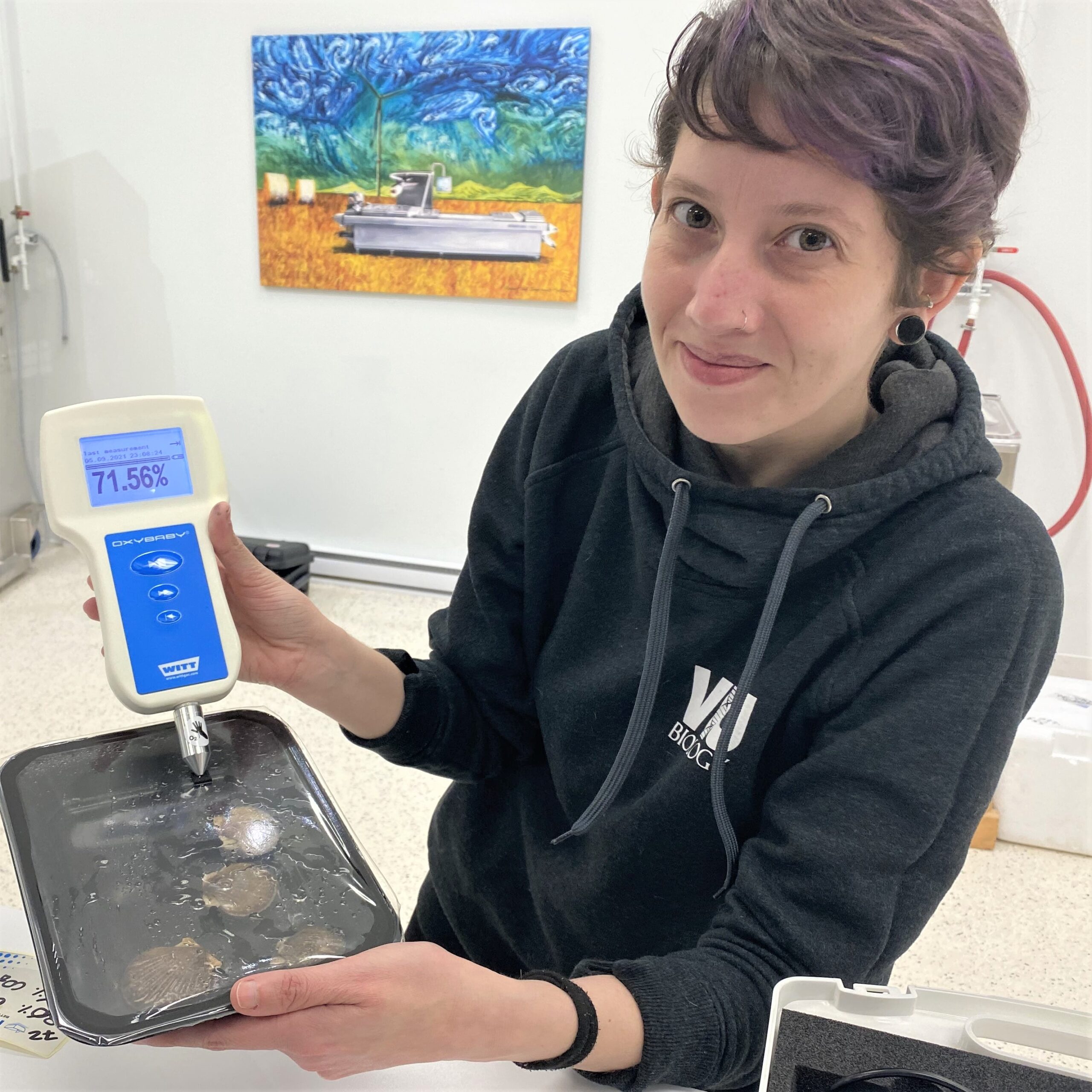
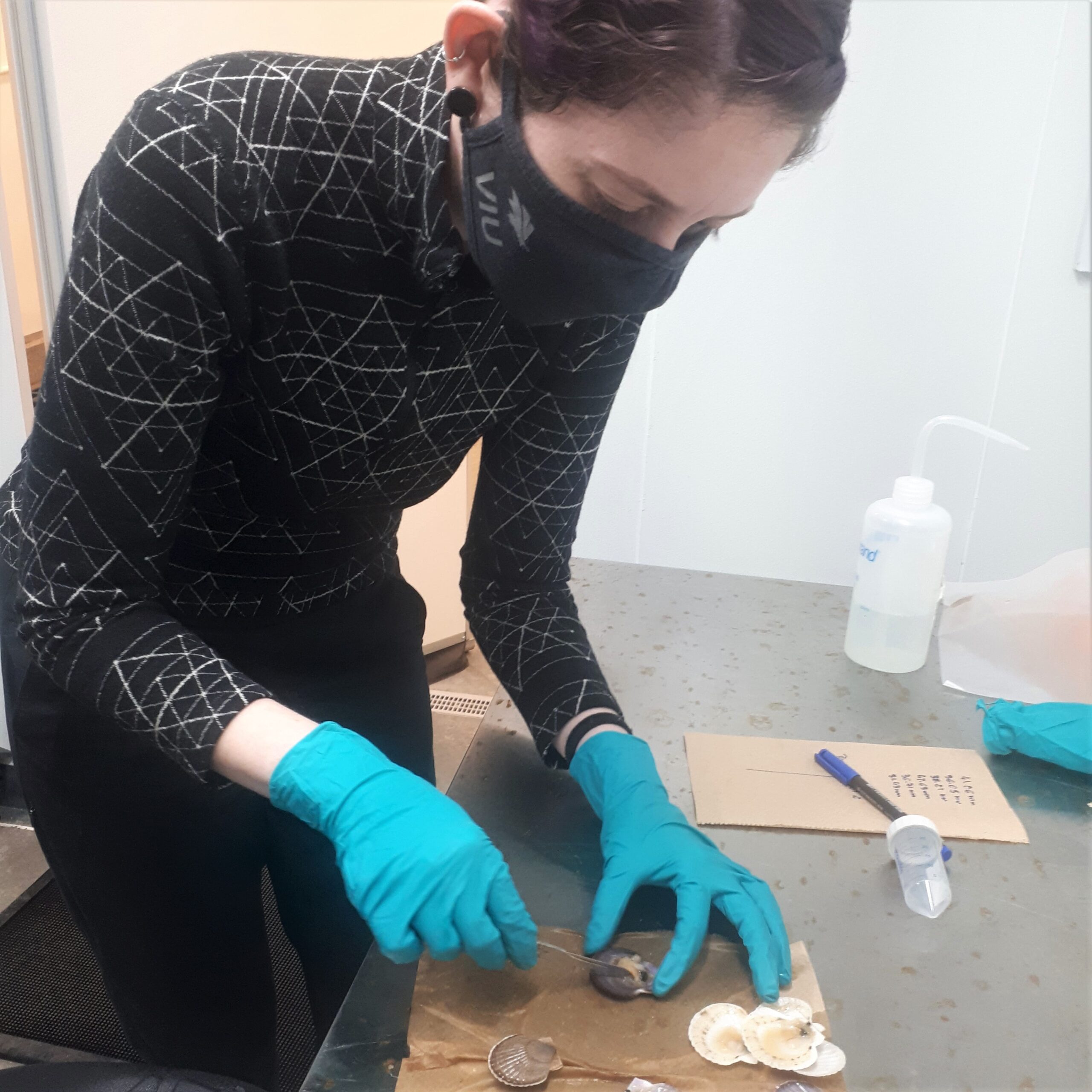
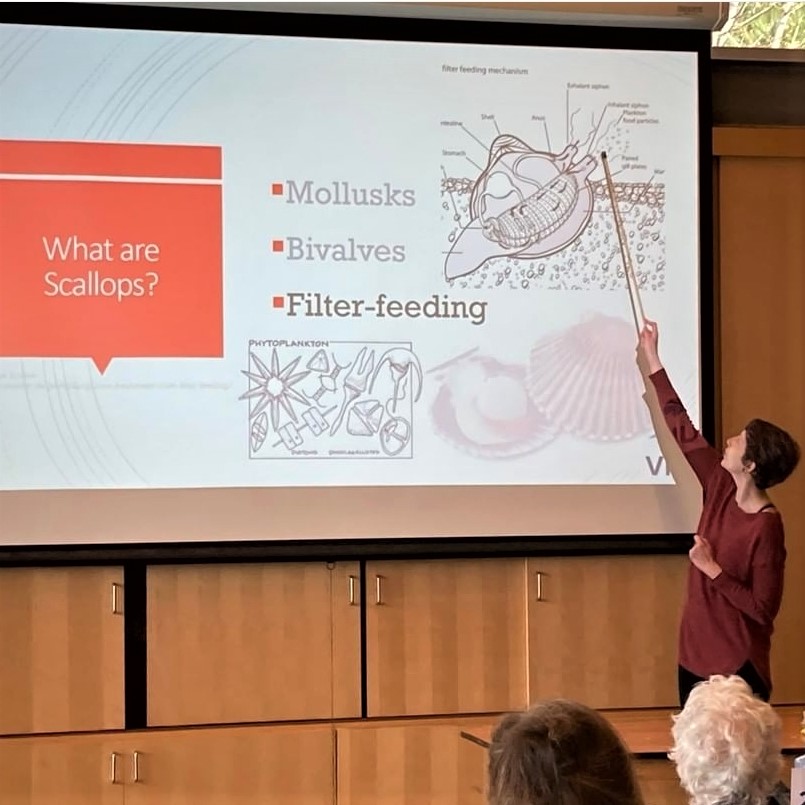
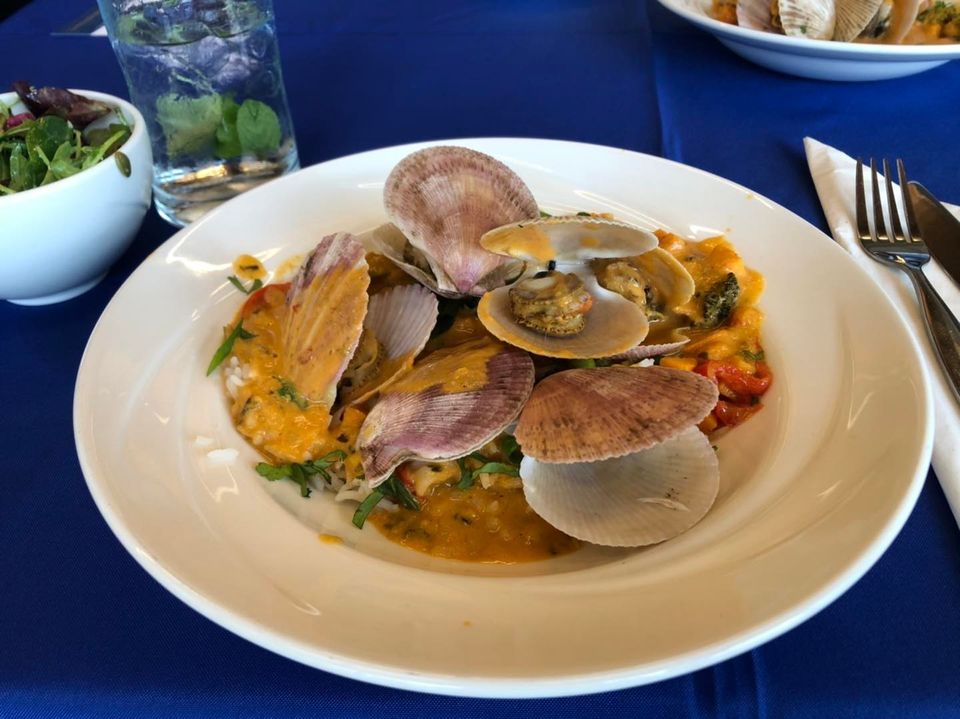
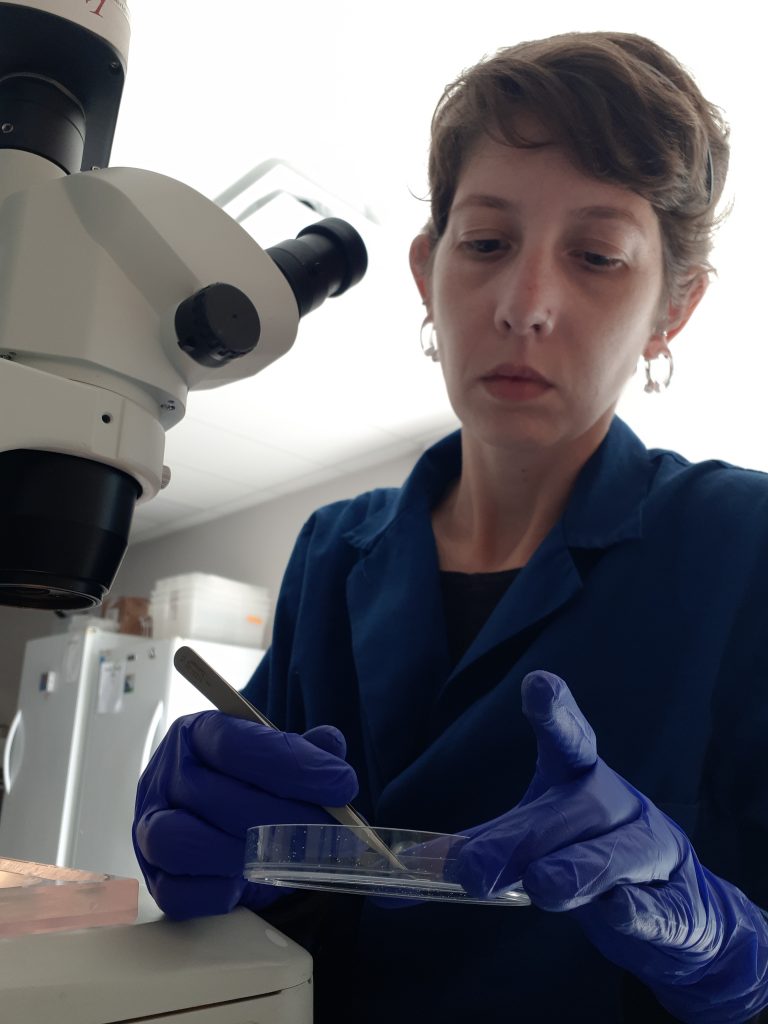
BC CAHS – Summer 2021
Lab Technician
Full time work from May 25th to September 3rd 2021 working as Lab Technician for the BC Centre for Aquatic Health Sciences in Campbell River, BC.
Over this Summer I’ve acquired hands-on experience on lab work geared towards the aquaculture industry. I’ve participated on BioAssays (EMB on sea lice), biofouling critter (zooplankton) identification on fish farms’ nets, juvenile salmonid identification (fry & parr stages), acquired zooplankton and marine invertebrate identification skills, as well as data entry and quality control of data entry. I’ve improved my competency on compound and dissecting microscopes, acquired good laboratory practices and refined great interpersonal skills.
While working for BC CAHS, the company moved from a temporary location in Discovery Park to their original laboratory downtown, and I’ve participated actively throughout the entire process, which included packing, moving & assembly of Lab equipment.
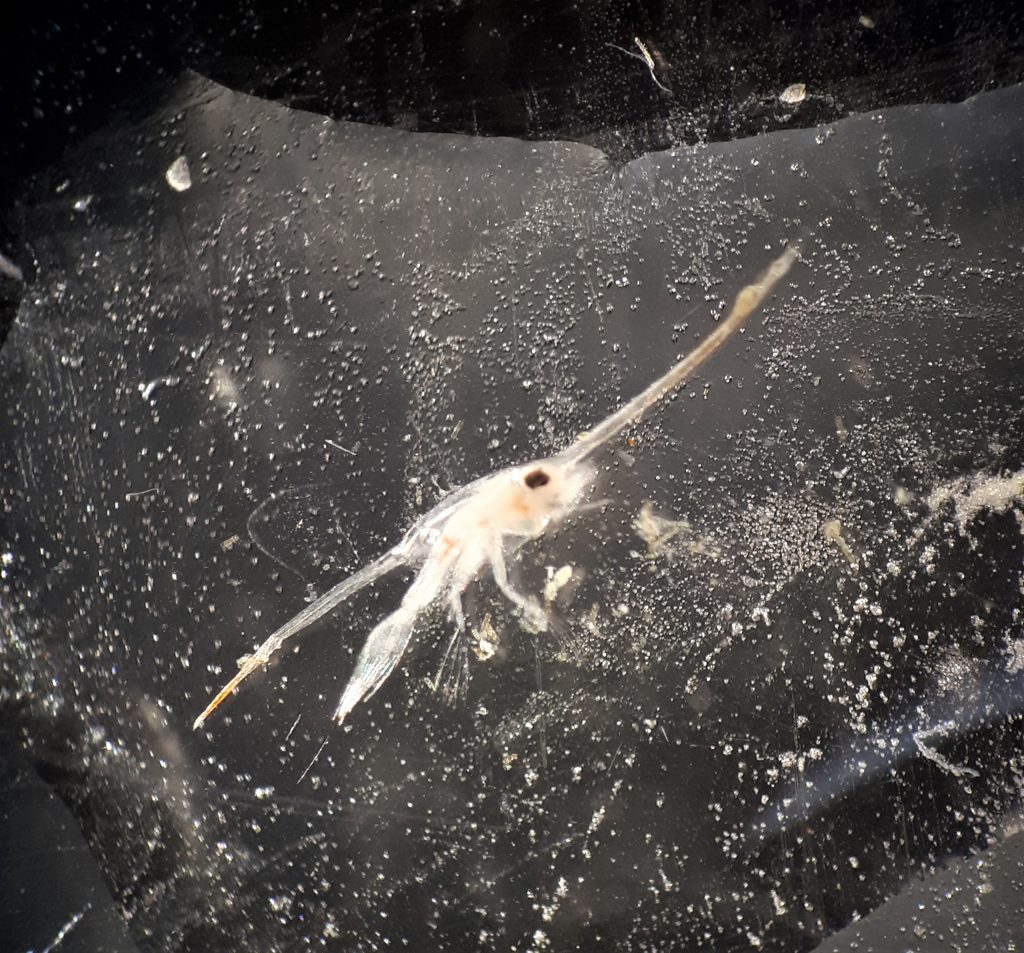
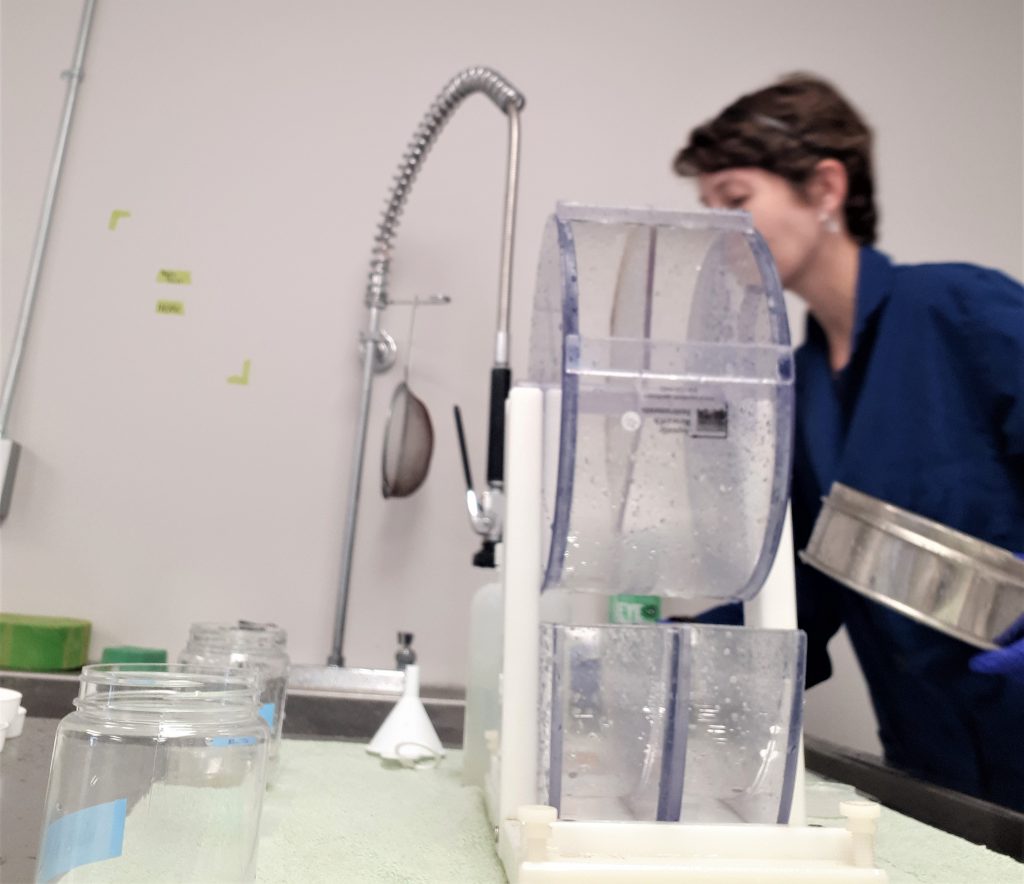
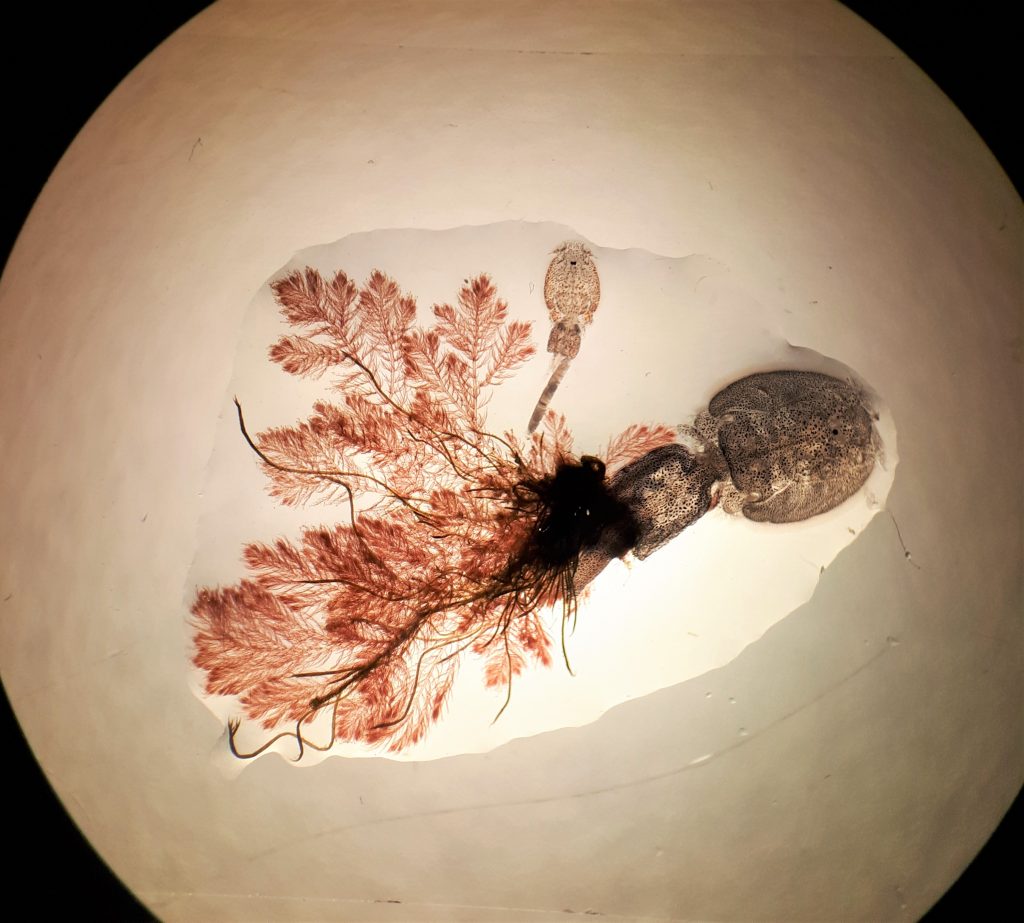
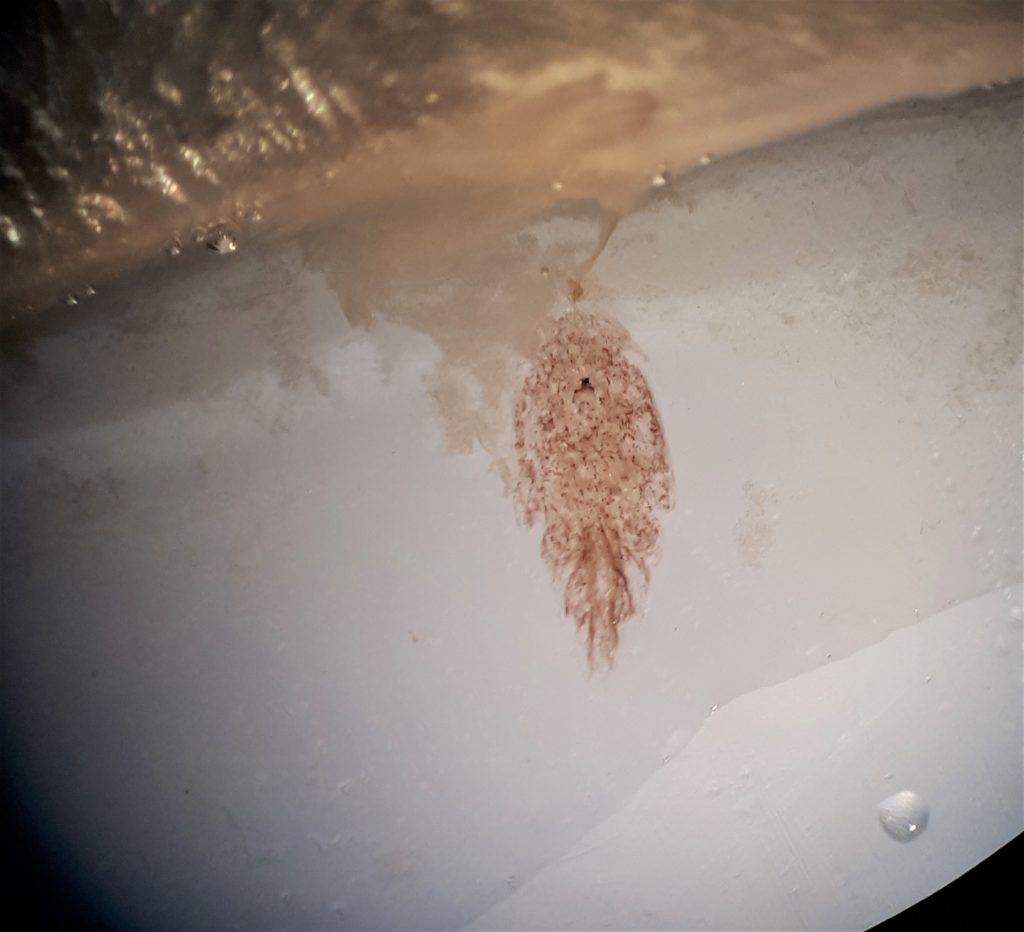
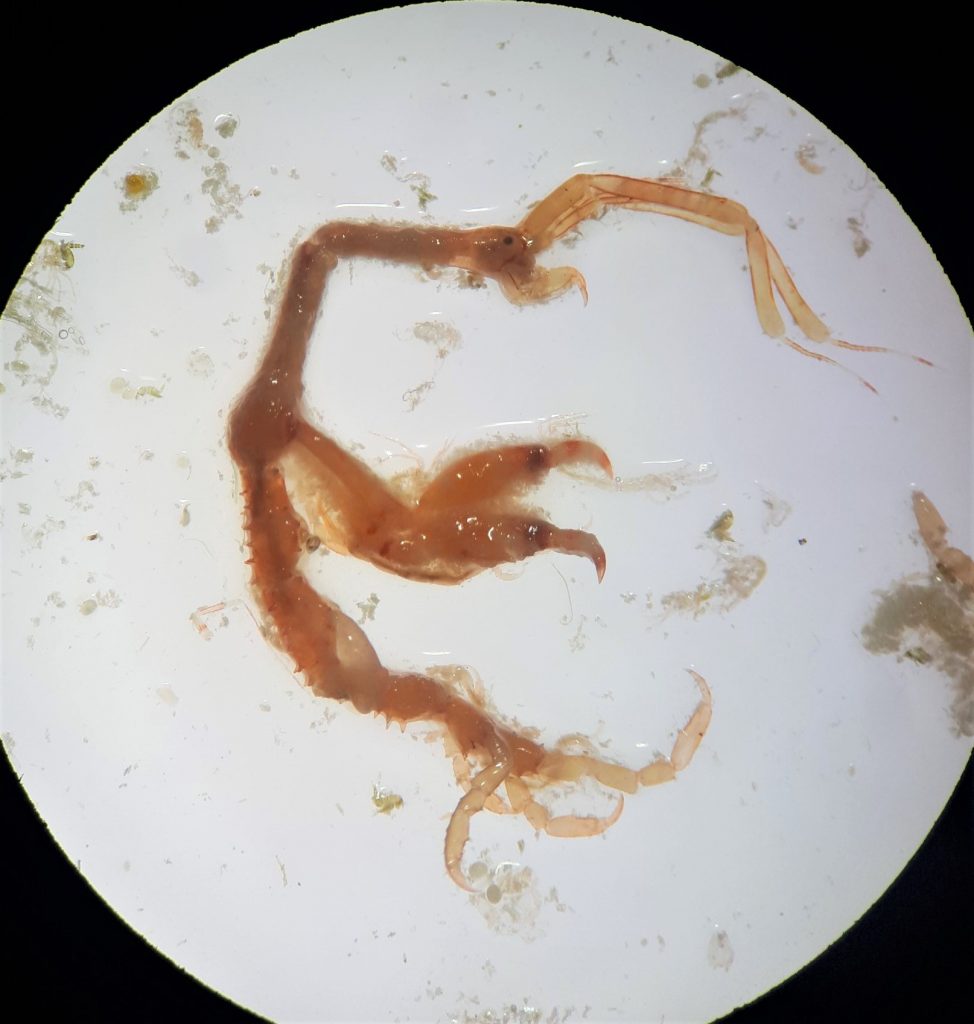
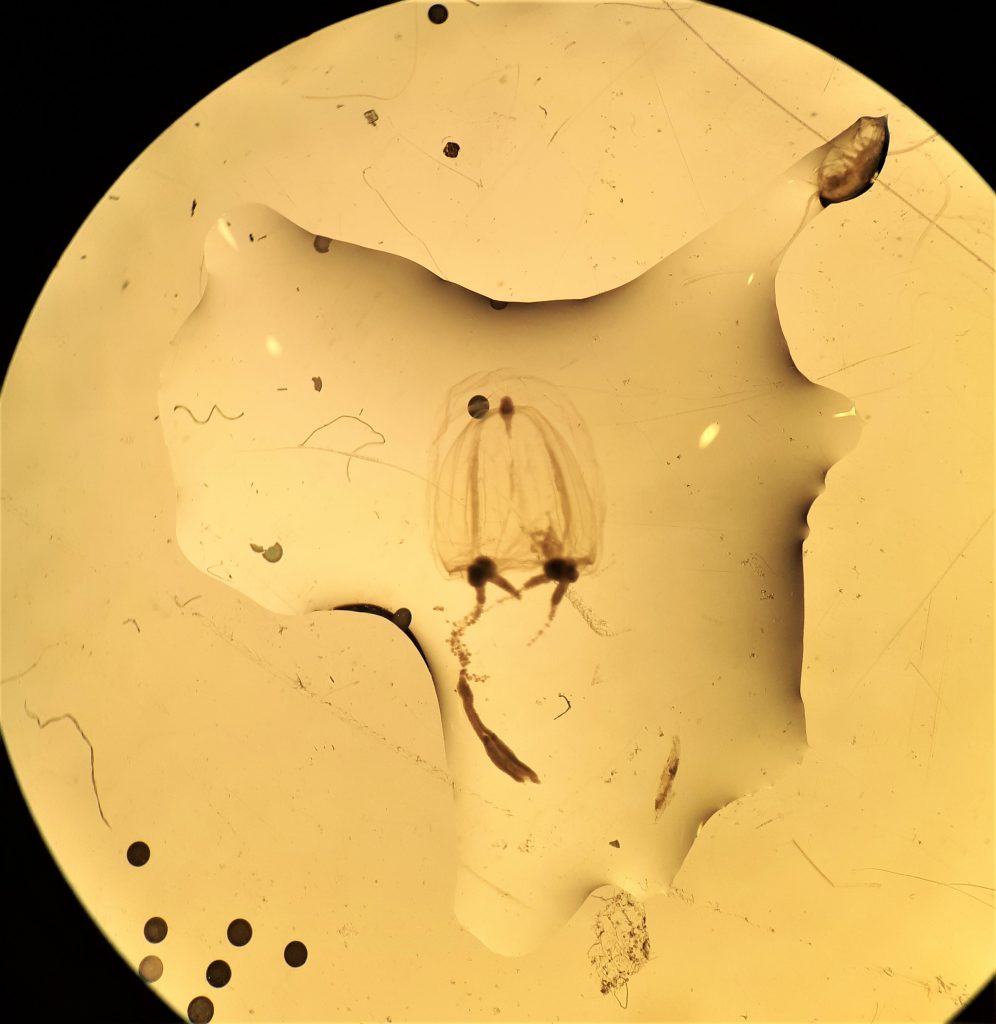
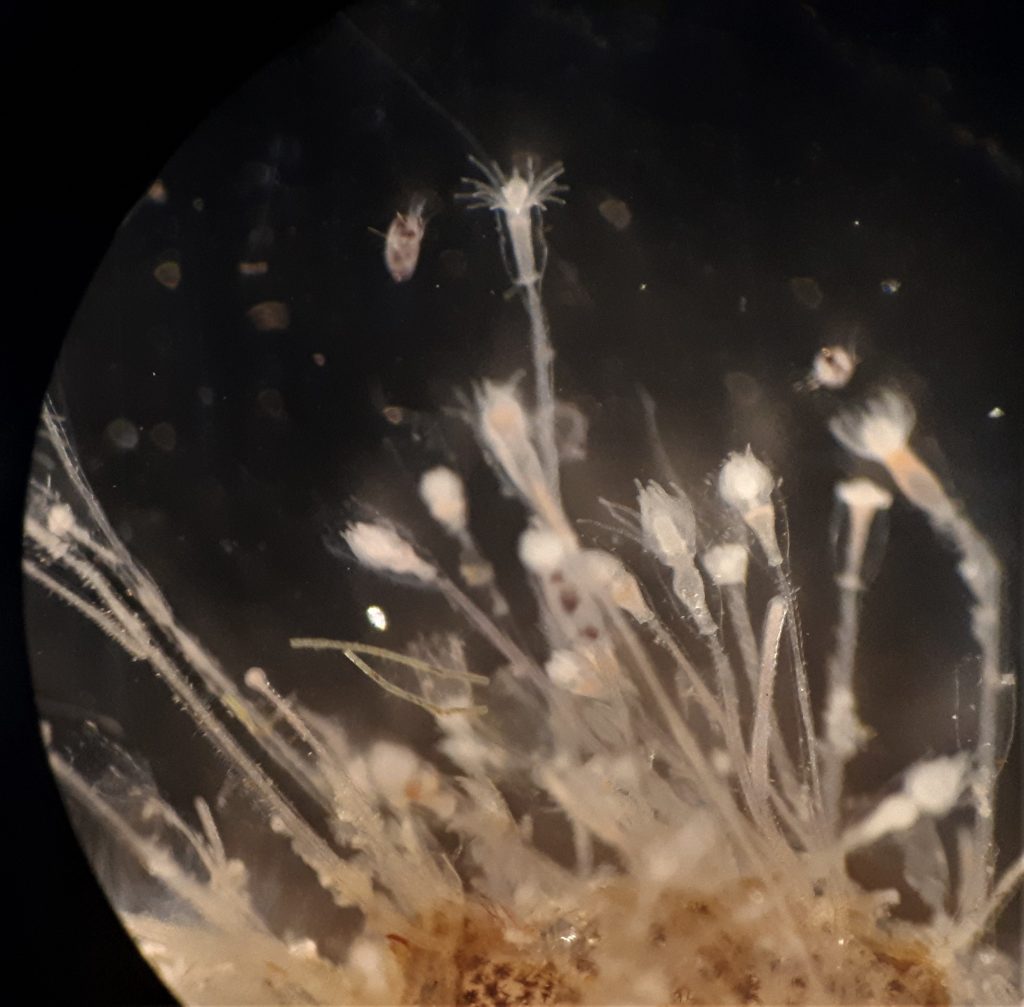
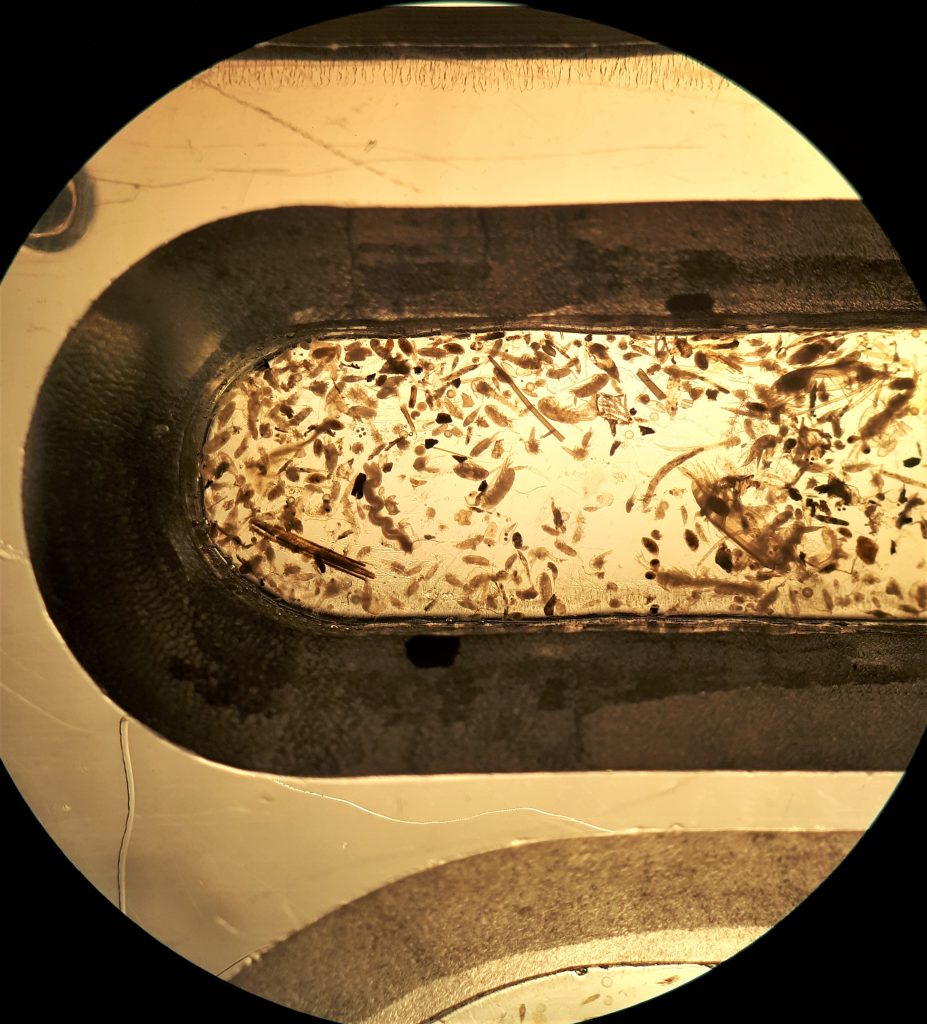
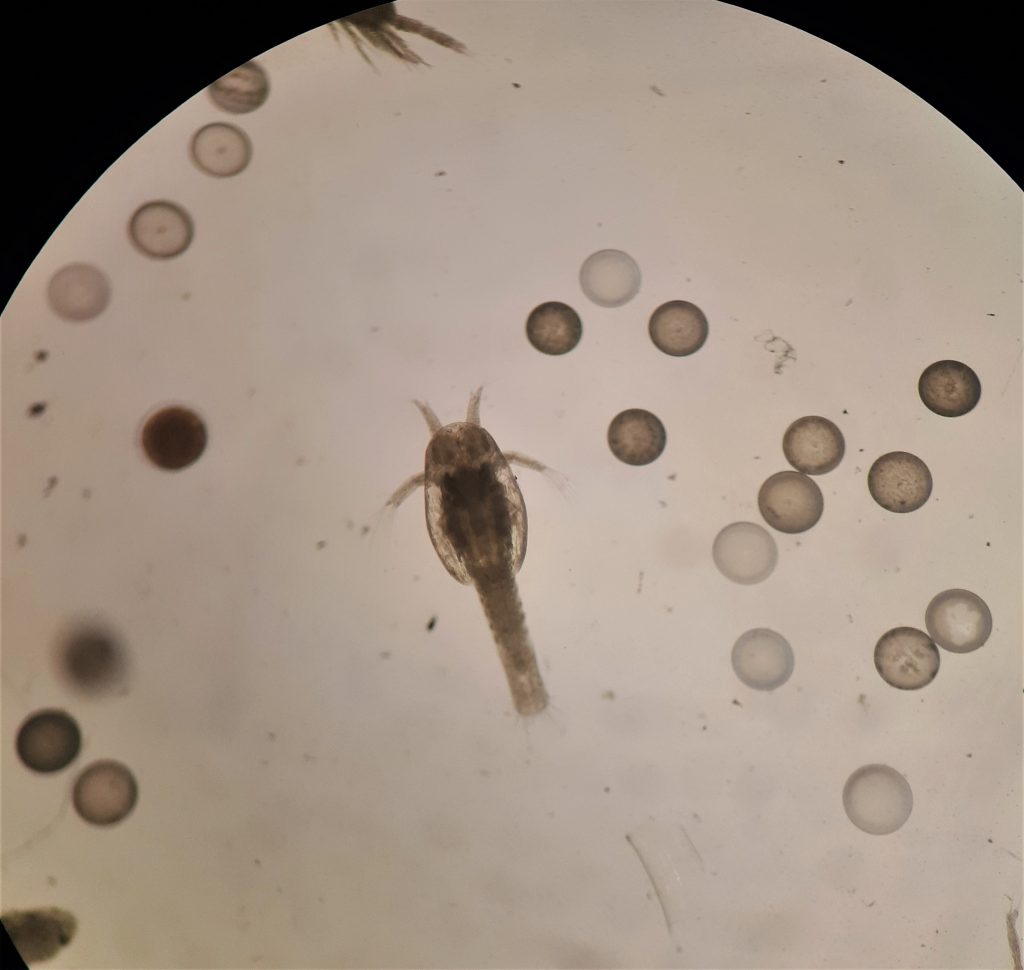

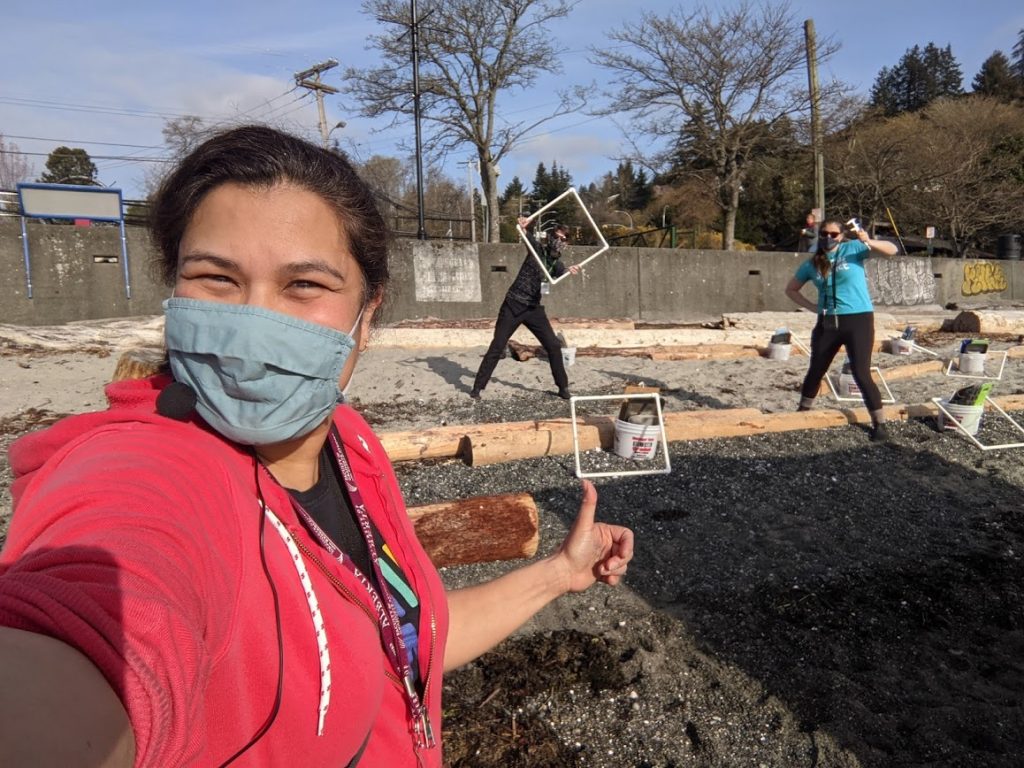
Nanaimo Science – Spring 2021
Outreach Educator
Part-time work during the full 2021 Spring semester as an Outreach Educator, promoting science literacy to students grades 4 to 7 in the Nanaimo Regional District schools. Delivered activities in different school in their outdoor spaces. Responsible for assembly of equipment, material distribution, material clean up and sanitizing in between classes, preparation of materials for next day’s classes and delivery of activities to the students.
Program themes were Microscope Exploration (G4) and Environmental Protection (G6), as well as Bivalve Citizen Science (G5) and others such as Astronomy, Human Anatomy, Healthy Streams testing and data collecting (G7), among others.
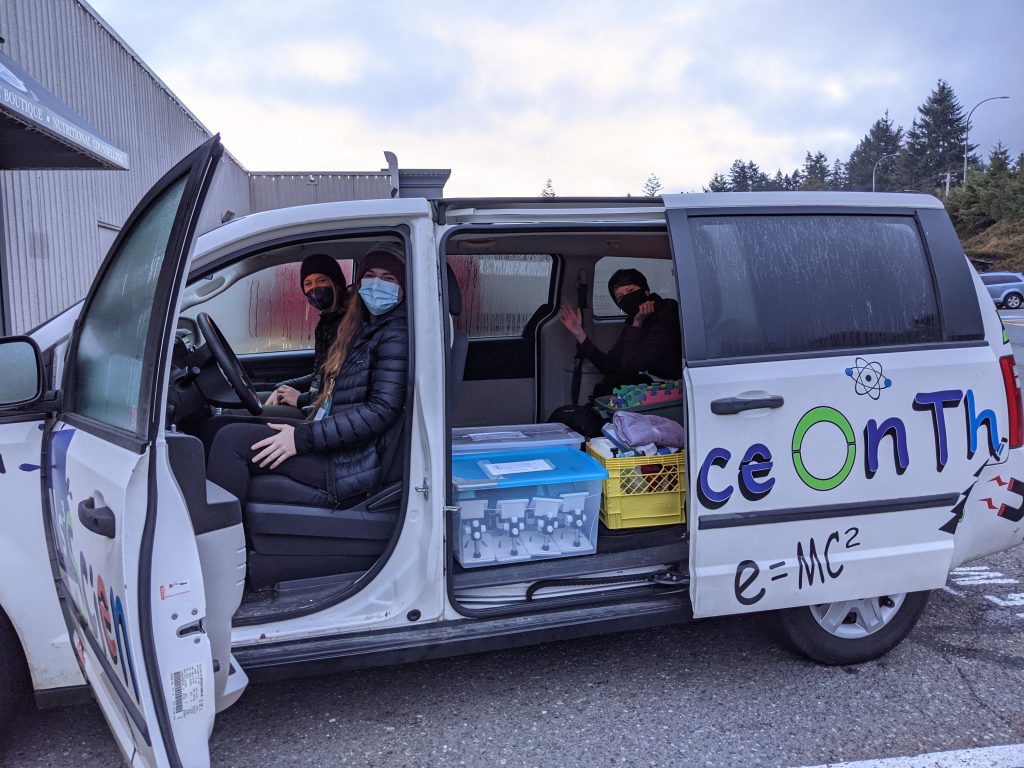
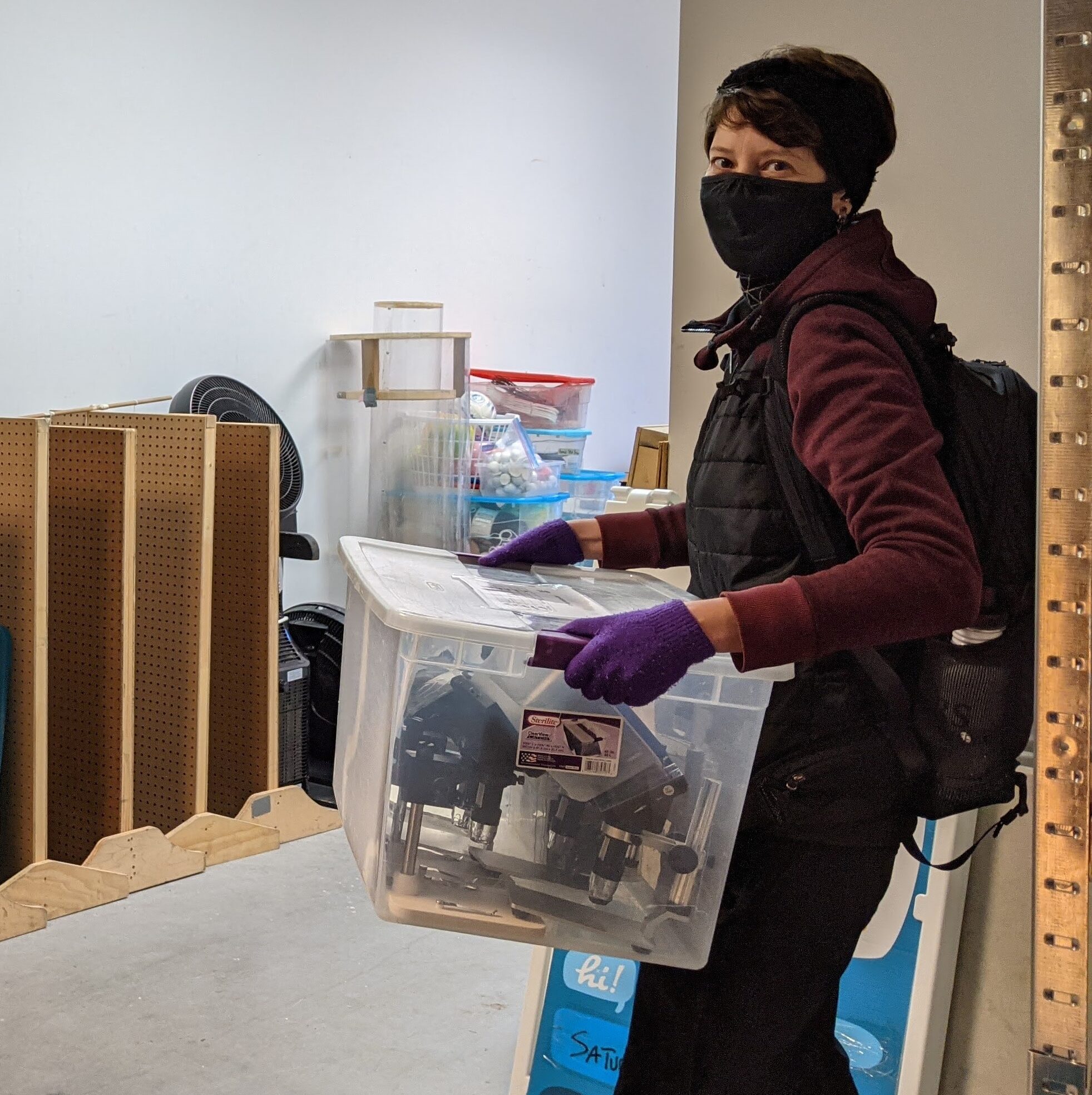
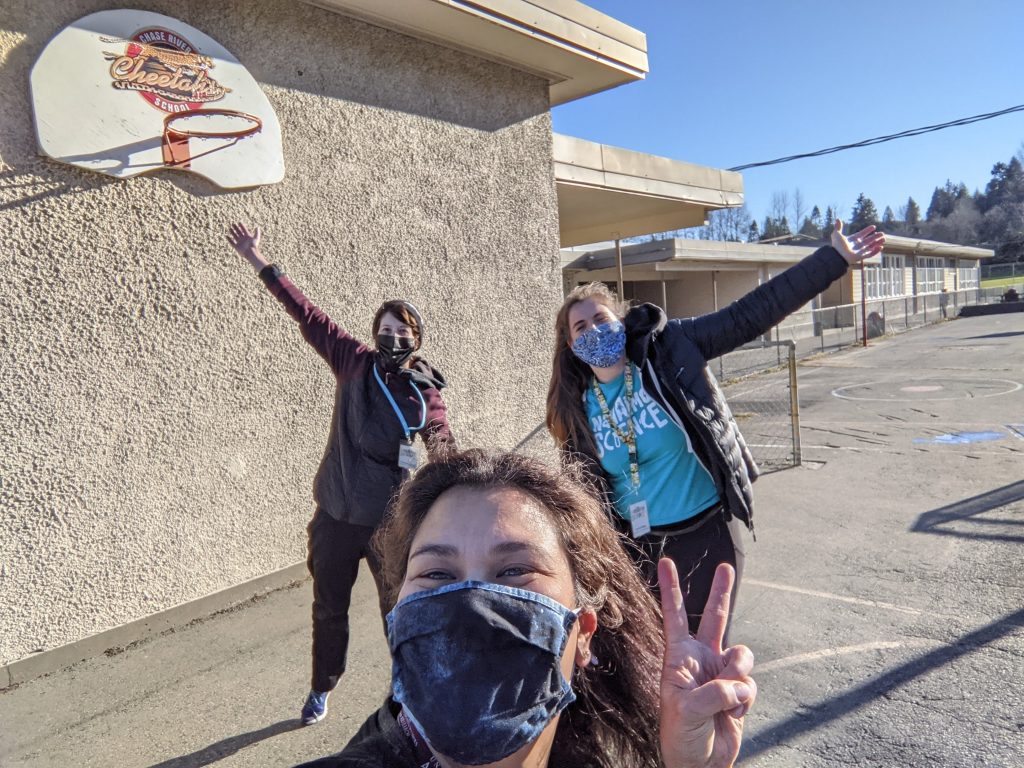
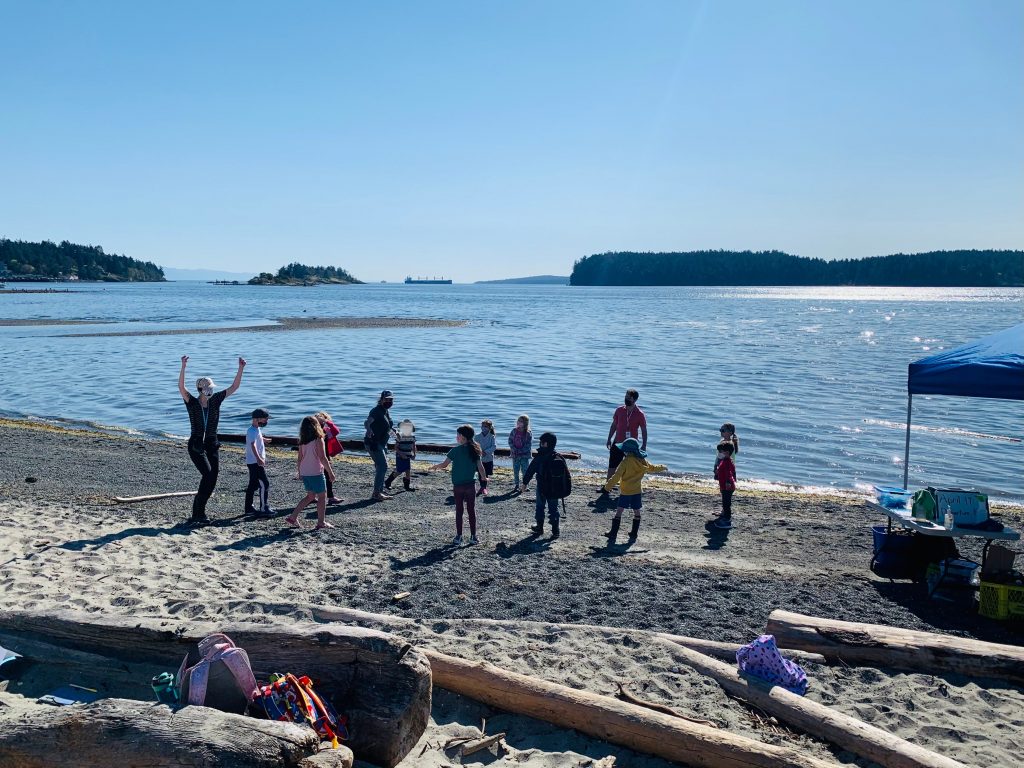
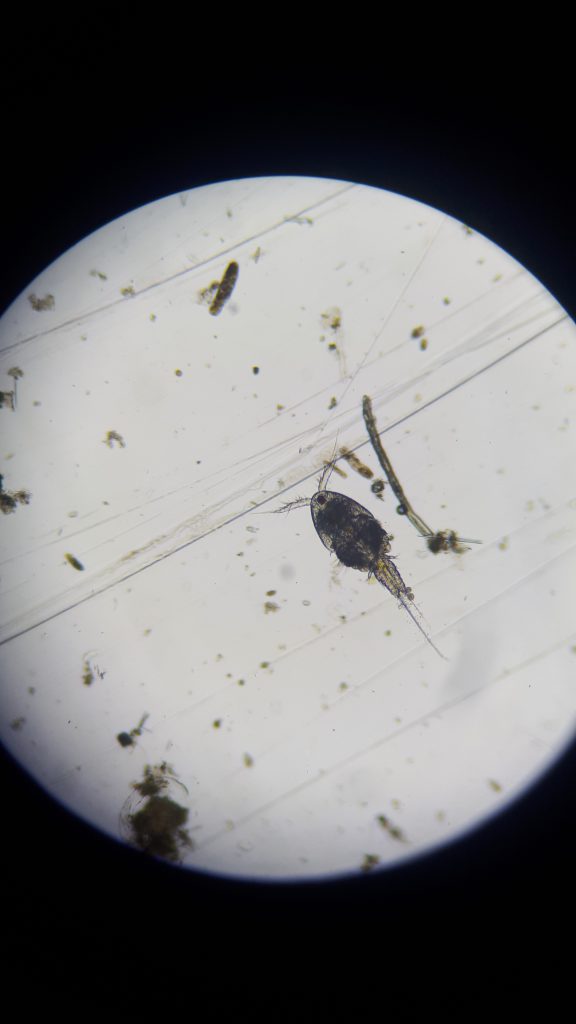
Plankton Sampling Collection and Identification (2021)
I’ve had an increased interest in the planktonic life in the recent year or so. After reading a few articles on this incredible world, I’ve decided to build my own plankton collection net. It is a small and home-crafted version, however it does the job and allows me to see organisms I’ve never seen before and never imagined existed.
I’ve tried my best to identify the genus or at least the phylum of the organism I am looking at. I’ve also ventured into trying to ID them by species, but I confess that was a bit trickier. I typically use free ID resources I am able to find on the internet.
I have purchased a beginner’s microscope with magnifications from 10x up to 800x.
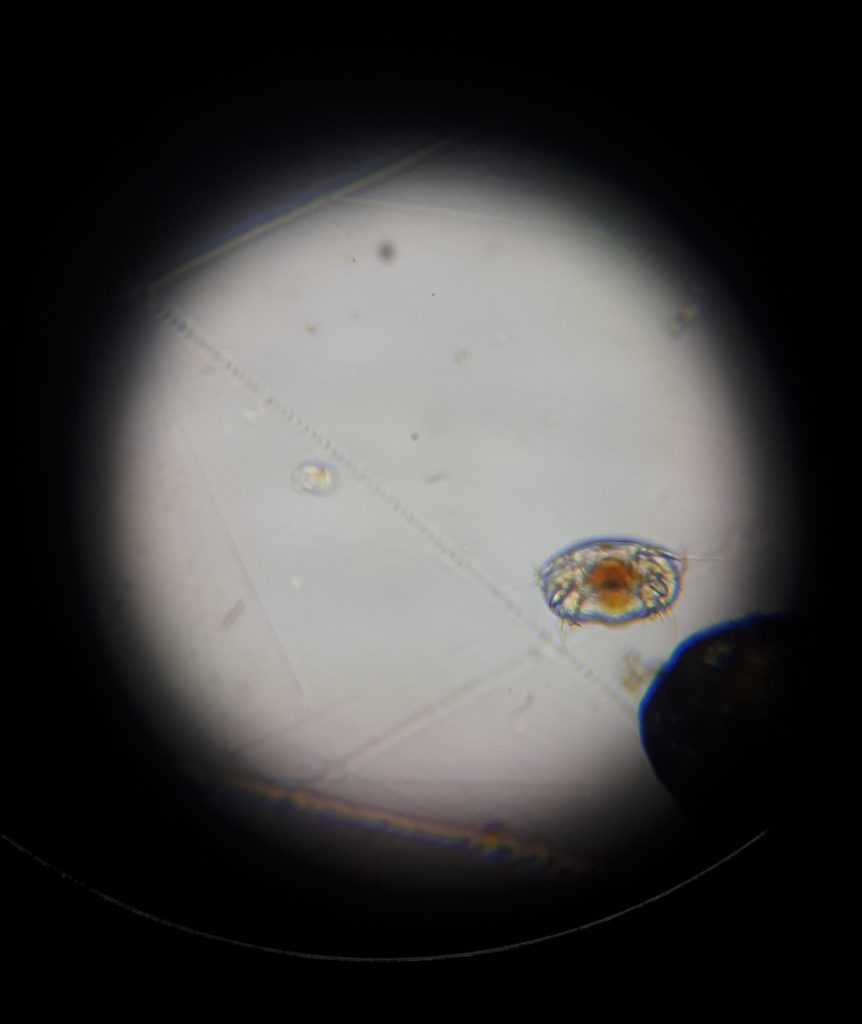

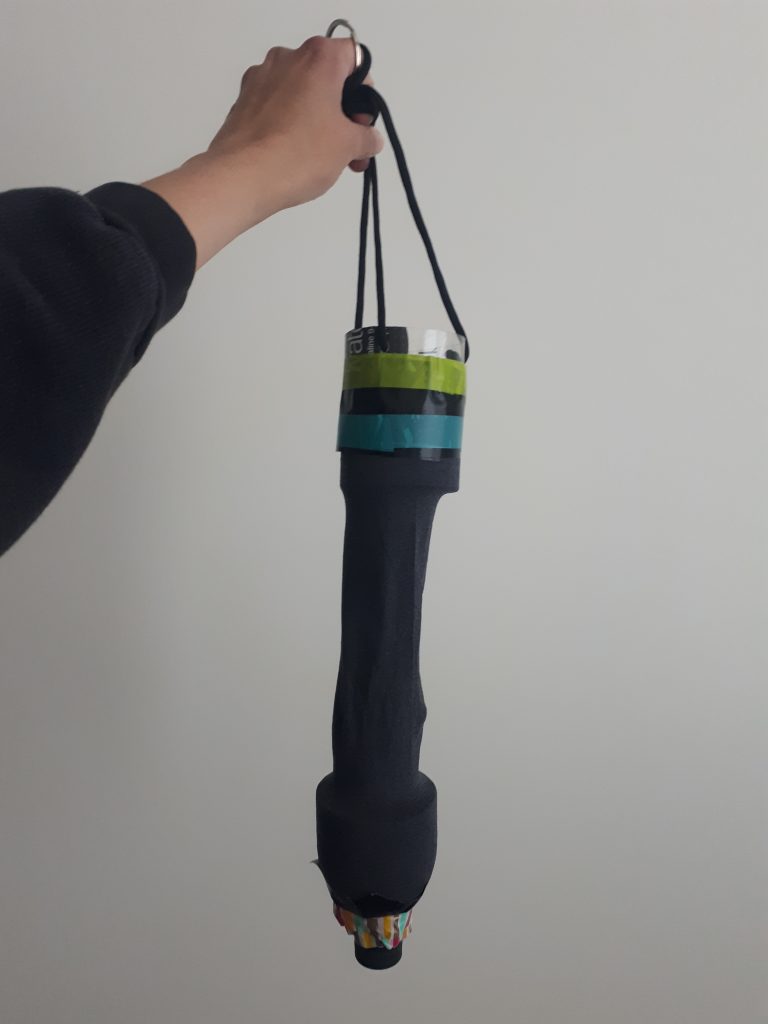
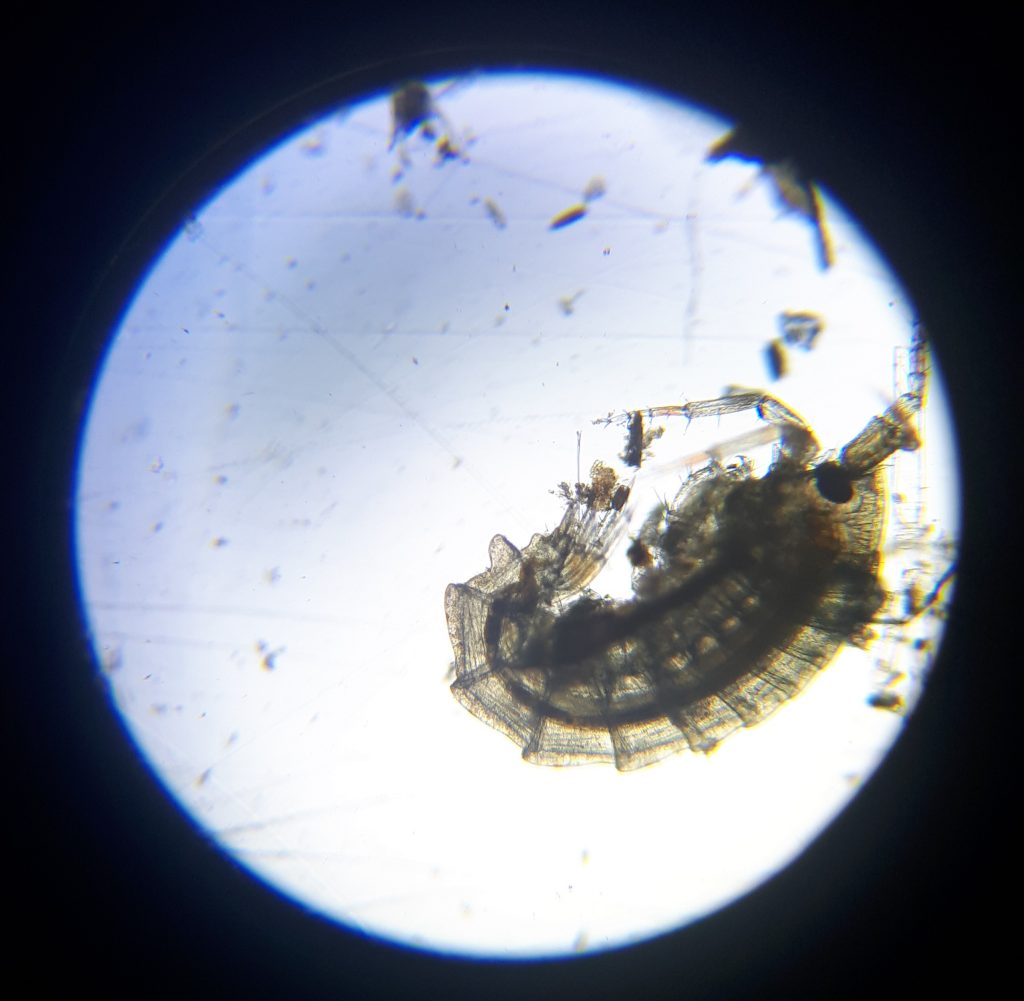
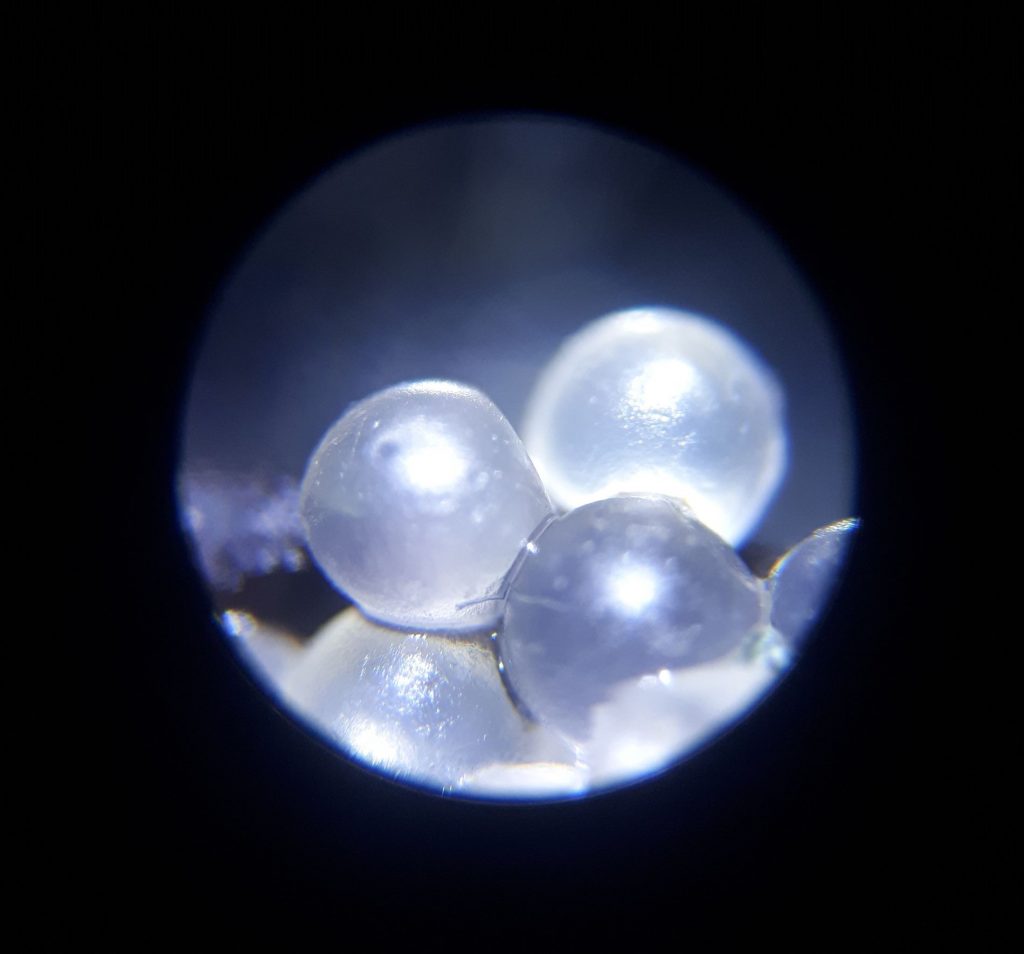
Research Assistant (Work-Op Fall 2019 & Spring 2020 Semesters)
@ MABRRI (Mount Arrowsmith Biosphere Region Research Institution) inside VIU Campus
Project: Forage Fish Spawning Habitat Monitoring
Despite the importance of forage fish as crucial part of the marine food web, there is little information regarding Pacific sand lance and surf smelt’s spawning locations and temporal distribution in the Salish Sea. In this project we work to map the successful spawning locations around the Mount Arrowsmith Biosphere and nearby regions. Research work involves sample and data collection, sample processing through the vortex method, analysis of the processed samples on the dissecting microscope to look for eggs and/or embryos.

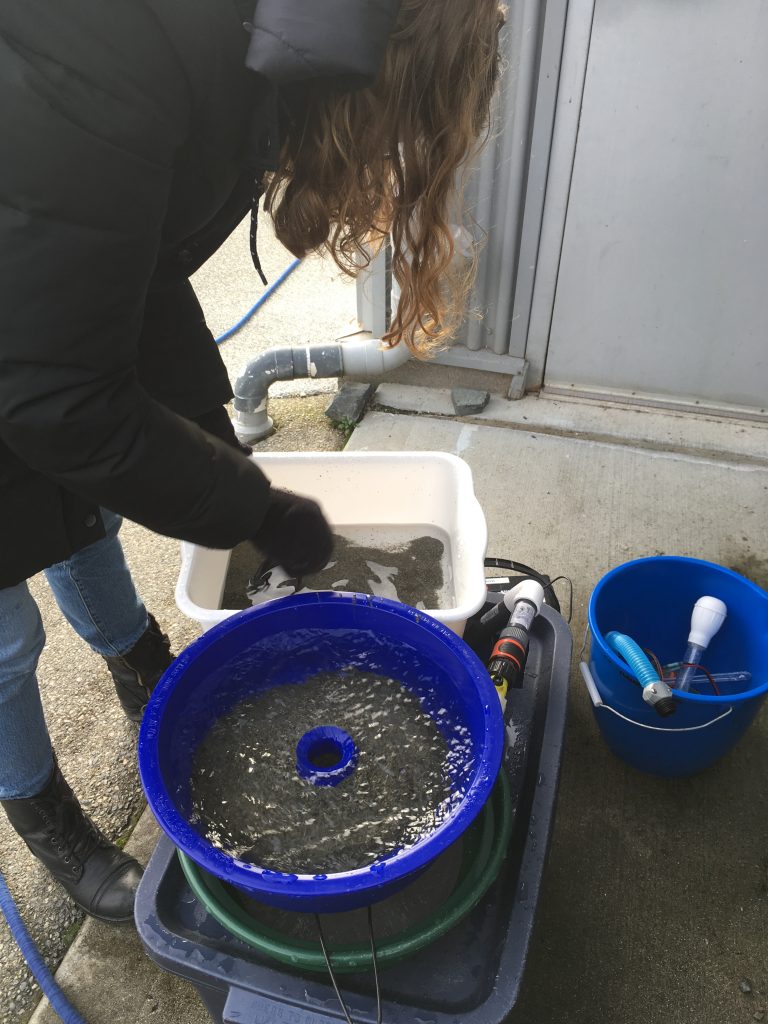
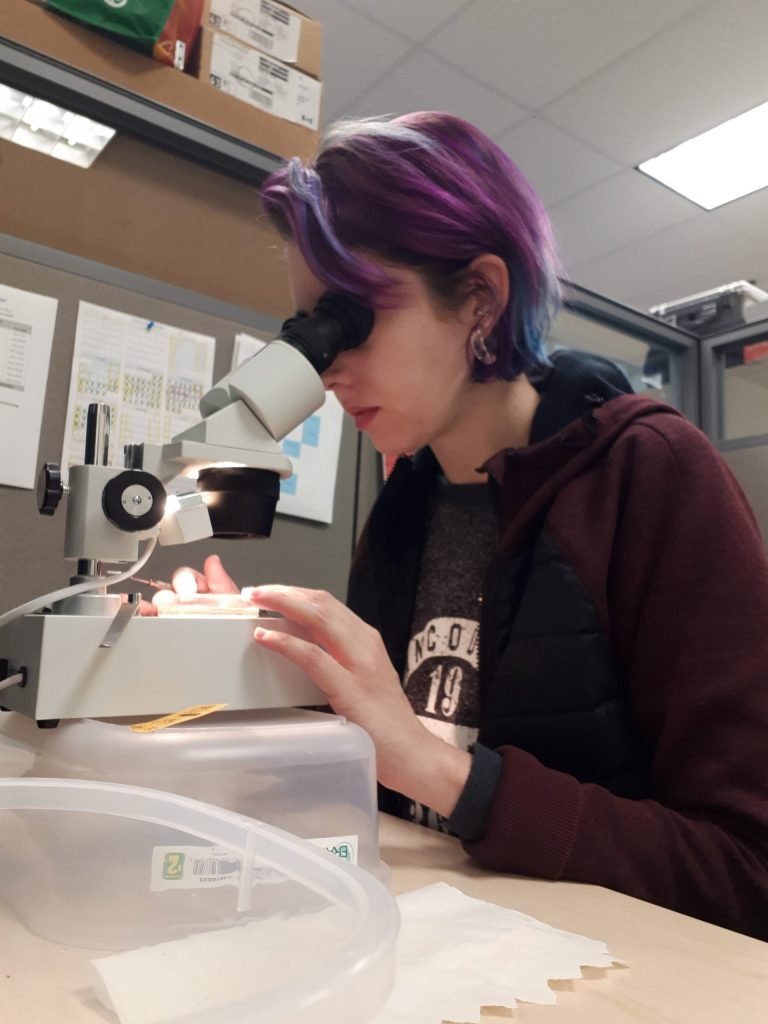
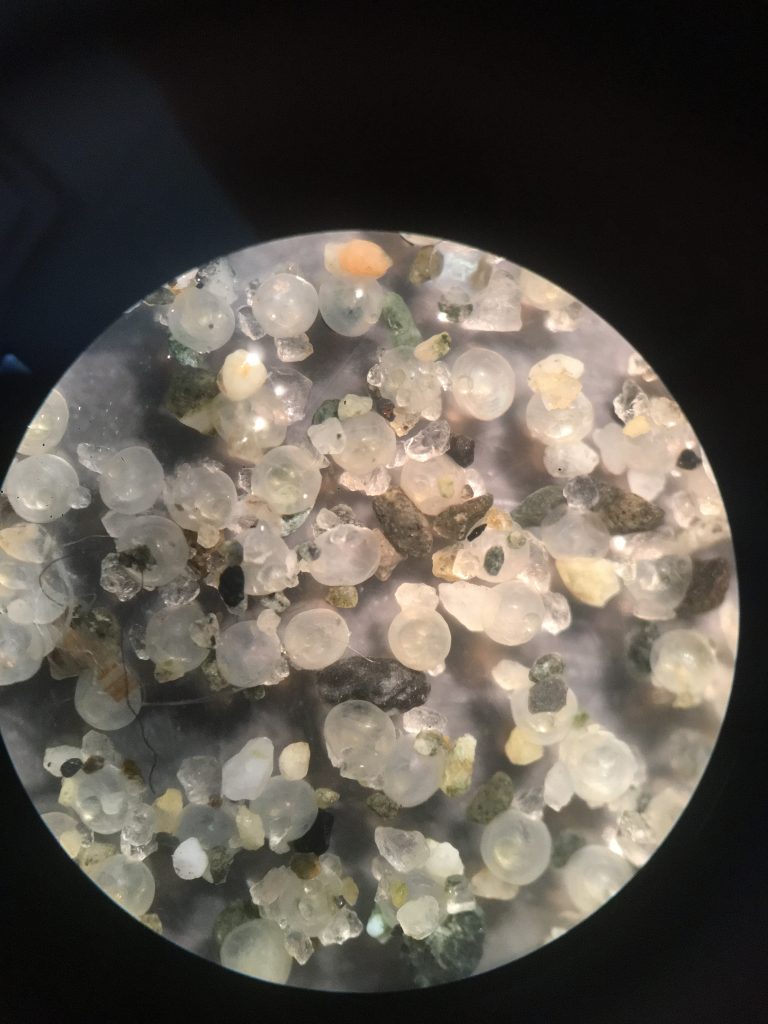
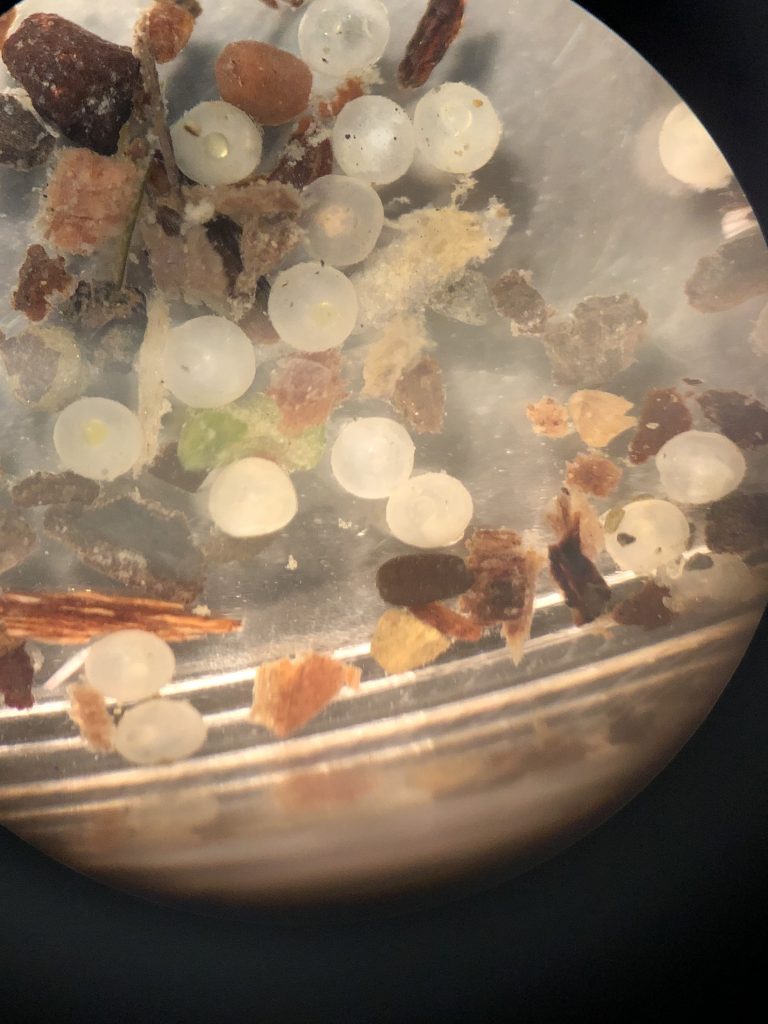
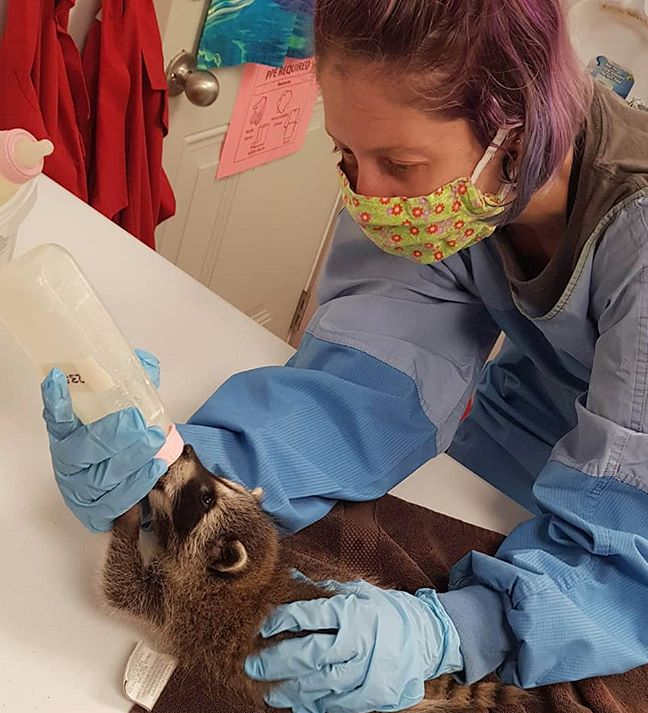
MARS Wildlife Rescue Centre (July 2020)
Student Volunteer (2 weeks)
Working at the MARS Wildlife Hospital was an incredible and priceless experience. I have learned an immense amount of information regarding our local wildlife! At my time working for MARS I’ve cared for and handled injured wild animals, assessed their health and nutrition, prepared their food, fed them, cleaned their enclosures, cleaned the hospital, etc.
Working at the MARS Wildlife Hospital was an incredible and priceless experience. I have learned an immense amount of information regarding our local wildlife! At my time working for MARS I’ve cared for and handled injured wild animals, assessed their health and nutrition, prepared their food, fed them, cleaned their enclosures, cleaned the hospital, etc.
As a person that is forever fascinated for the marine environment… I live on land! (Therefore the chances of me running into an injured land animal is much higher). Being at the rescue gave me a first hand experience and look at how rescues work and now I know better how to act (or to not act!) and protect wildlife from further human-caused damage. Living on-site and attending the hospital for long, intense and extremely rewarding shifts has changed my perspective forever.
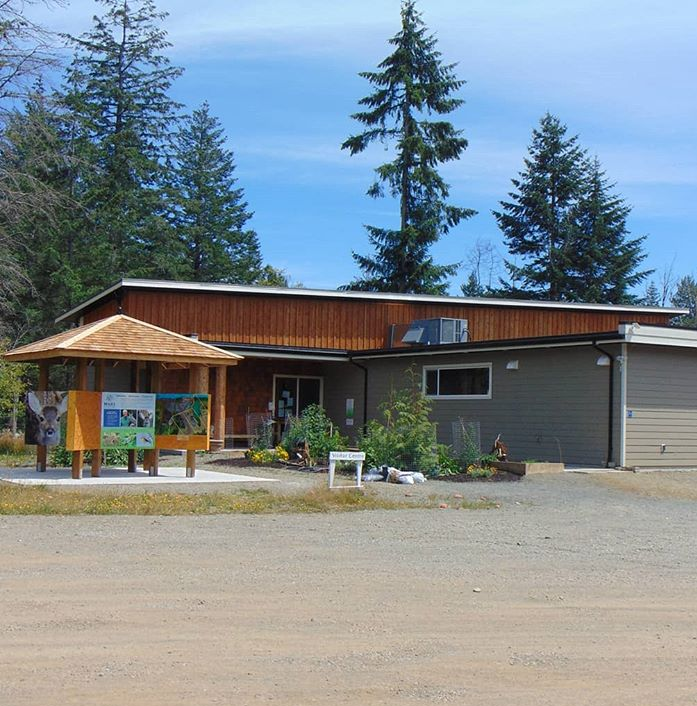
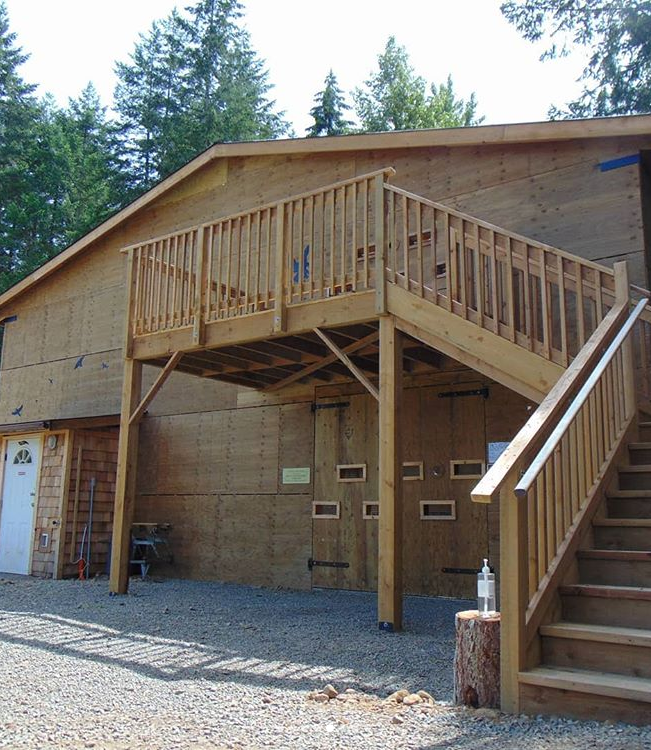
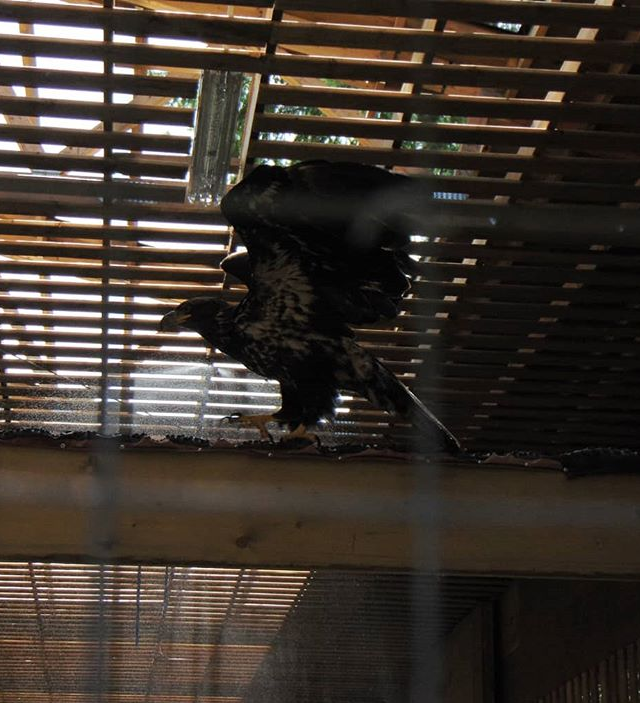
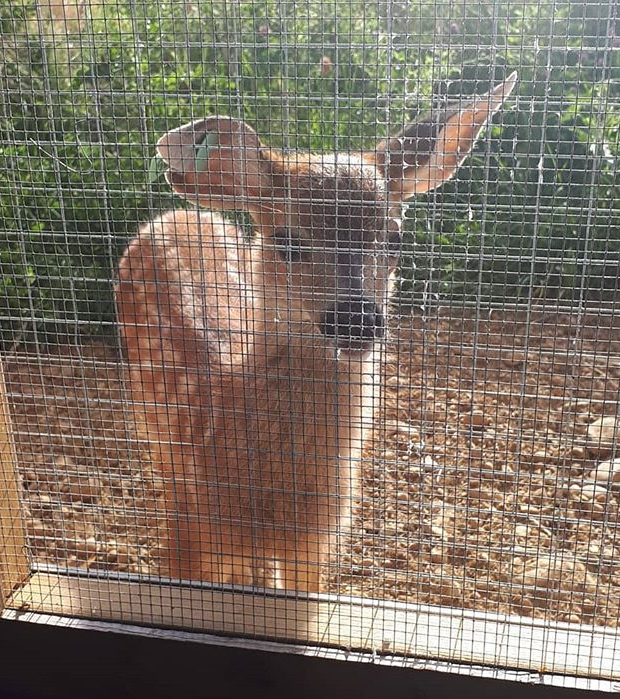
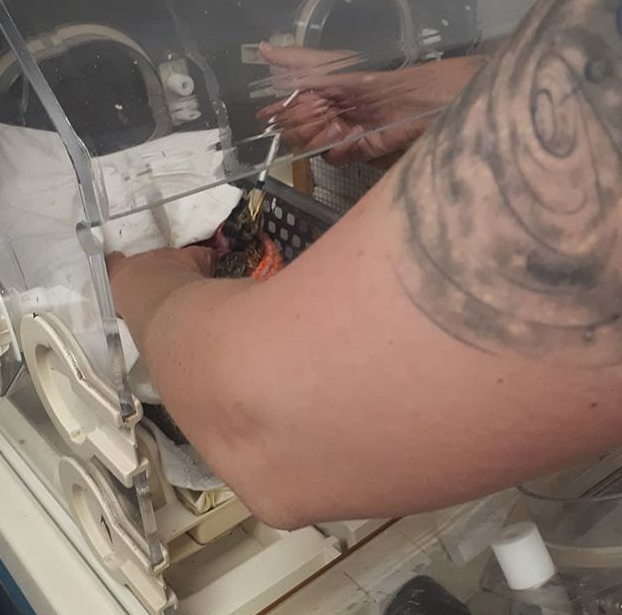
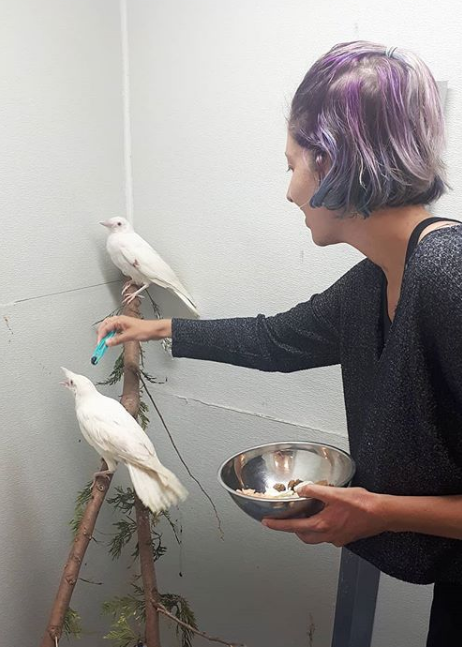
iBiology Online Self-Paced course: Planning Your Scientific Journey (July 2020)
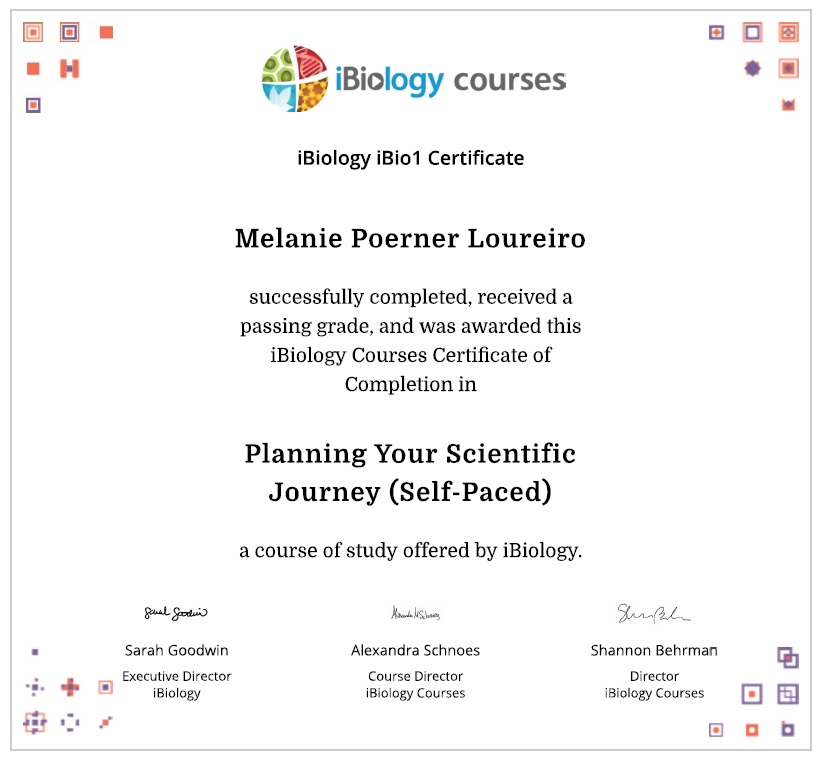
This summer I’ve dedicated some time to learning more about the research aspect of Biology. This course introduced me to the mentality in a grad setting, but more importantly it taught me how to ask the right scientific question in a research project and how to evaluate if a question is a good/answerable one, as well as sketching a plan of action.
“Being successful as a scientist requires more than acquiring knowledge and developing experimental skills. It also requires: (1) asking a good scientific question, (2) establishing a clear plan of action, and (3) seeking advice along the way. These three topics are the focus of this course ‘Planning Your Scientific Journey,’ which is aimed primarily at life science graduate and undergraduate students, but also useful for postdocs, staff scientists, and others who could benefit from learning or reviewing these topics.“
Click here for more information on this iBiology course.
Research Conference Poster (April 2020)
Research Poster designed for the CREATE Student Conference
(@ VIU April 2020 – cancelled due to COVID-19)
As a first year student, I was excited with the opportunity to share the work MABRRI had done up to January 2020, specially being able to be part of it as a work op student. With a background in graphic design, I did my best to present MABRRI’s research in a visually attractive way but above all making it easy to understand the flow of information and follow the research methodologies and results.
My direct supervisors Haley Tomlin and Alanna Vivani were my mentors in developing the poster.
Please see below the finalized poster:
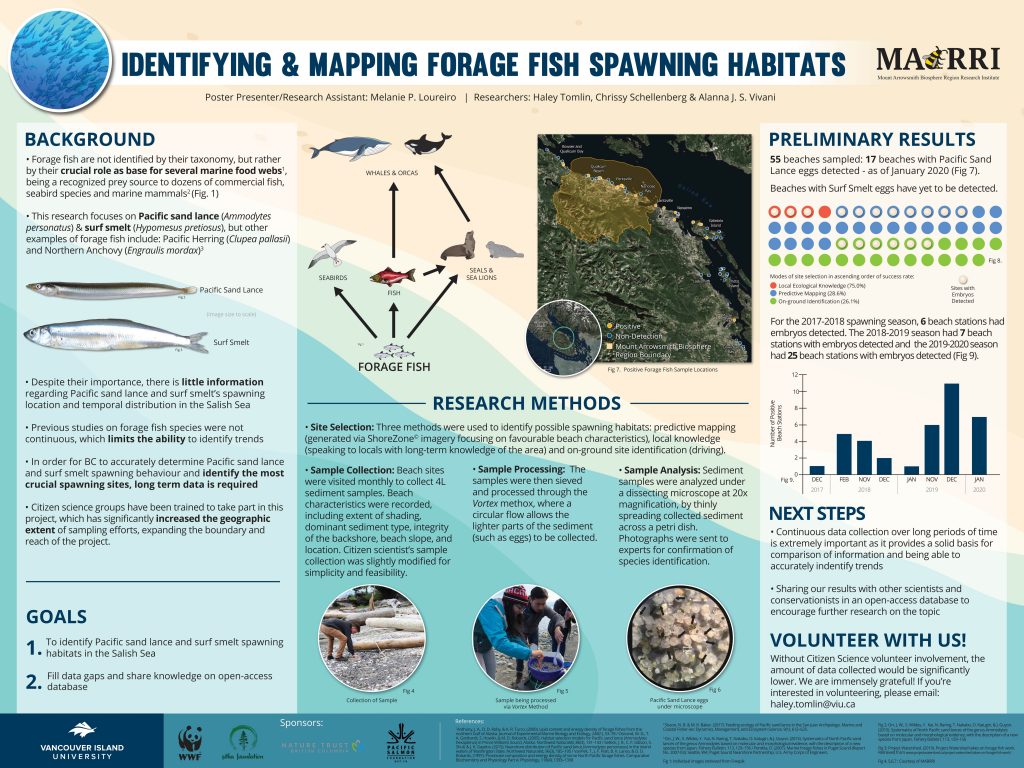
Sustainable Development Goals Youth Training (November 2019)
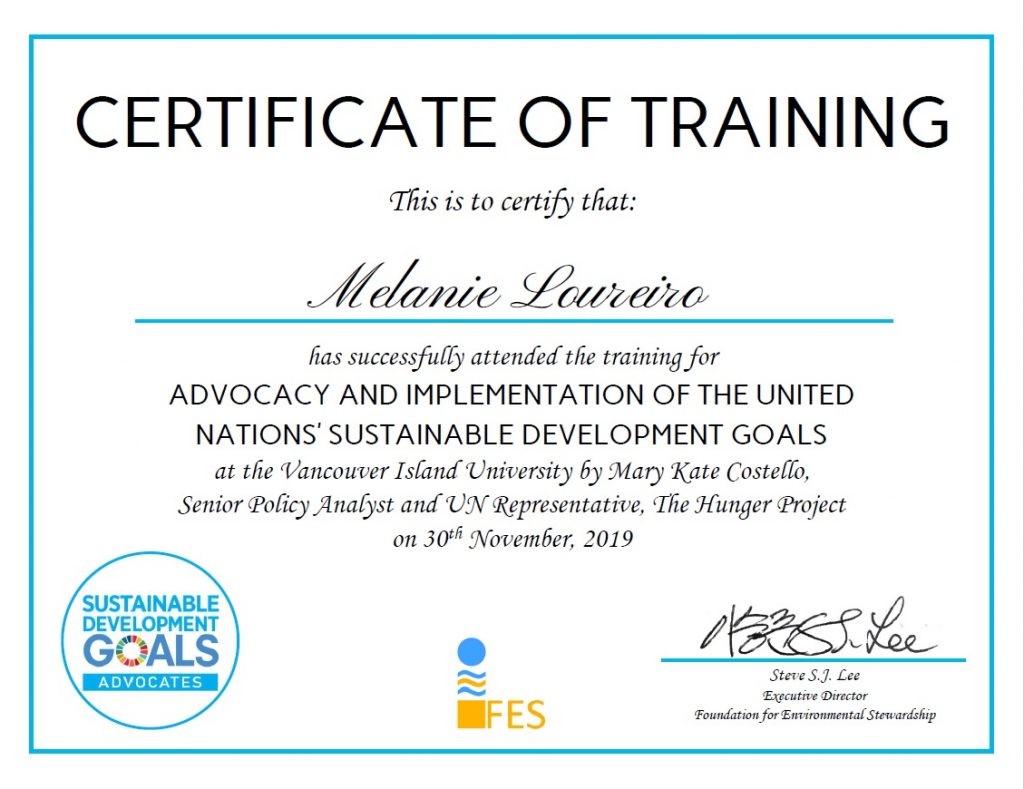
A one-time training opportunity on the United Nations’ Sustainable Development Goals (SDG’s), focused on advocacy and implementation in local communities. The SDG’s were launched in 2016 as an “ambitious set of goals to banish a whole host of social ills by 2030.” The training I received encouraged me to do my part and gave me a deeper understanding of how several different pieces in our complex social fabric fit together and affect each other (both directly and indirectly).
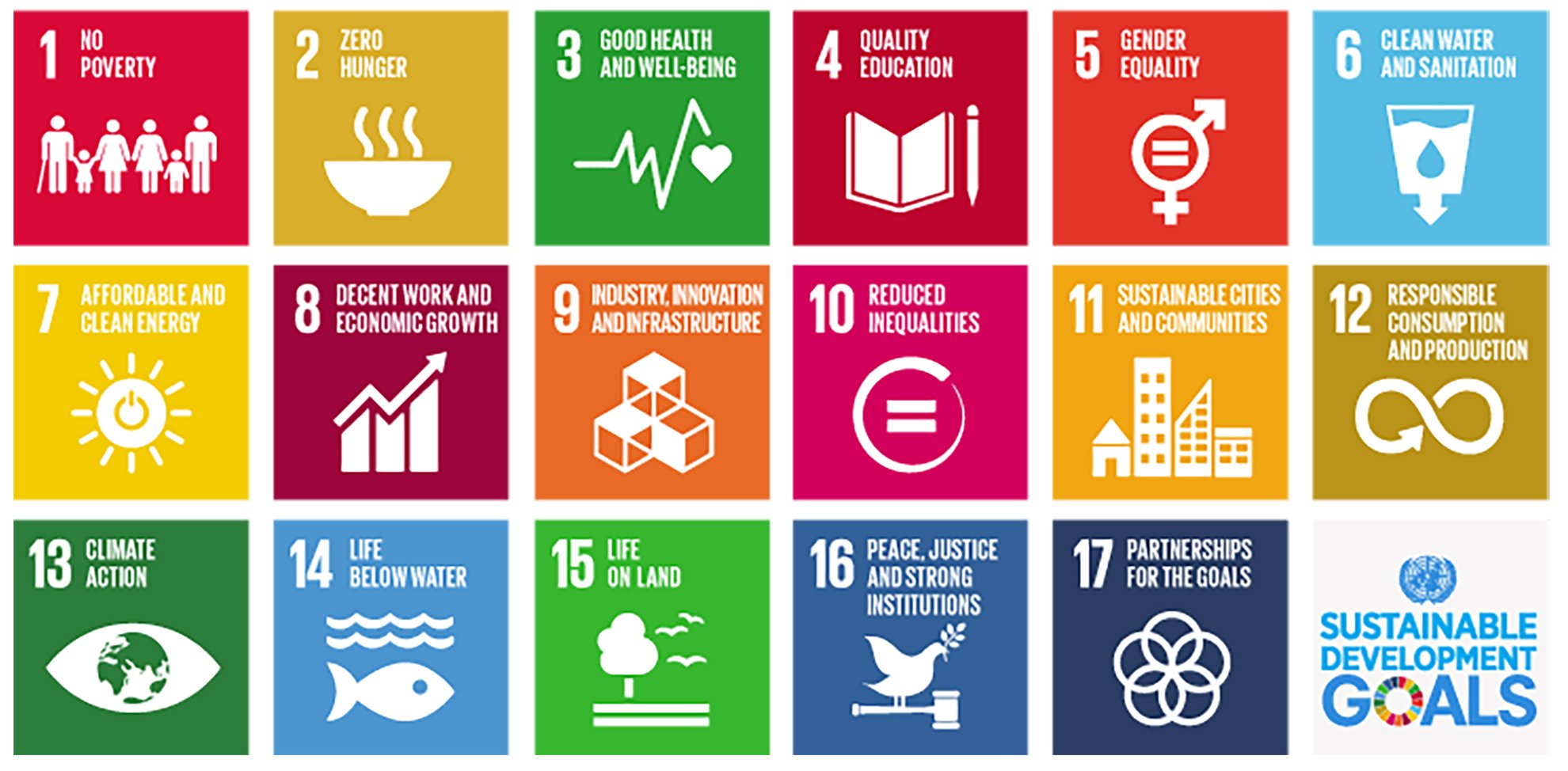
Humpback Whale Identification (May 2019)
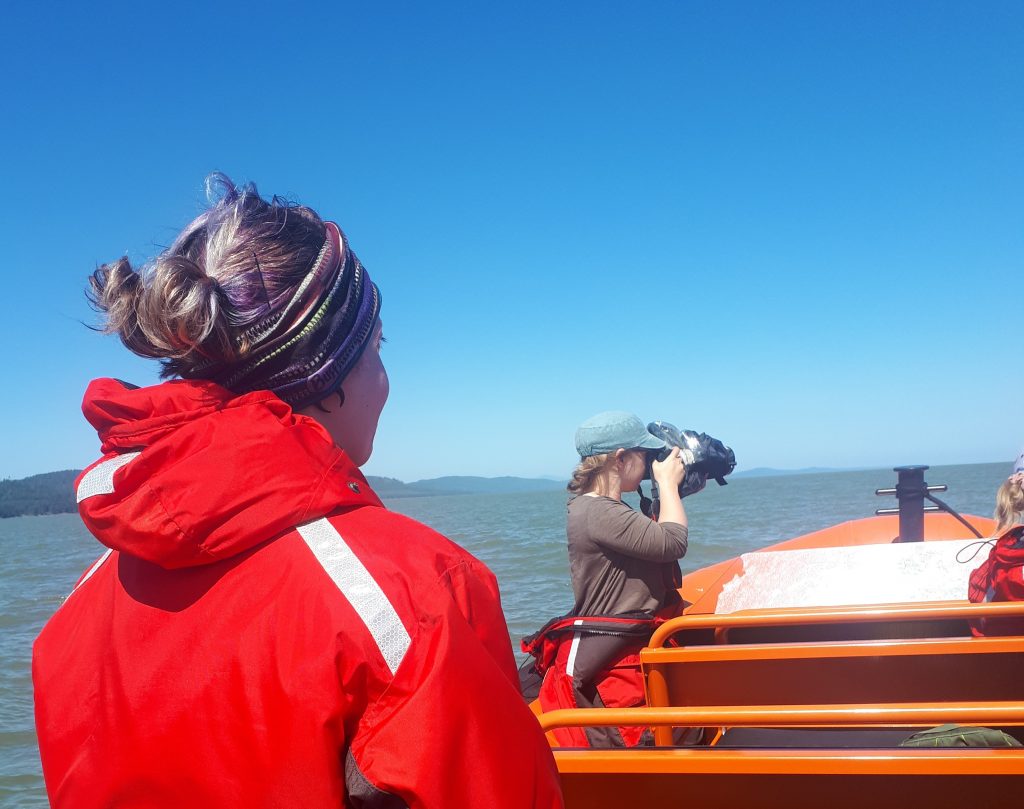
I had the great opportunity of joining a short expedition and record data while other researchers identified the behaviour and physical characteristics of local Humpback individuals in the Salish Sea area with Keta Coastal Conservation and Vancouver Island Whale Watch, with the goal to better understand the return of Humpback whales to British Columbia’s waters.
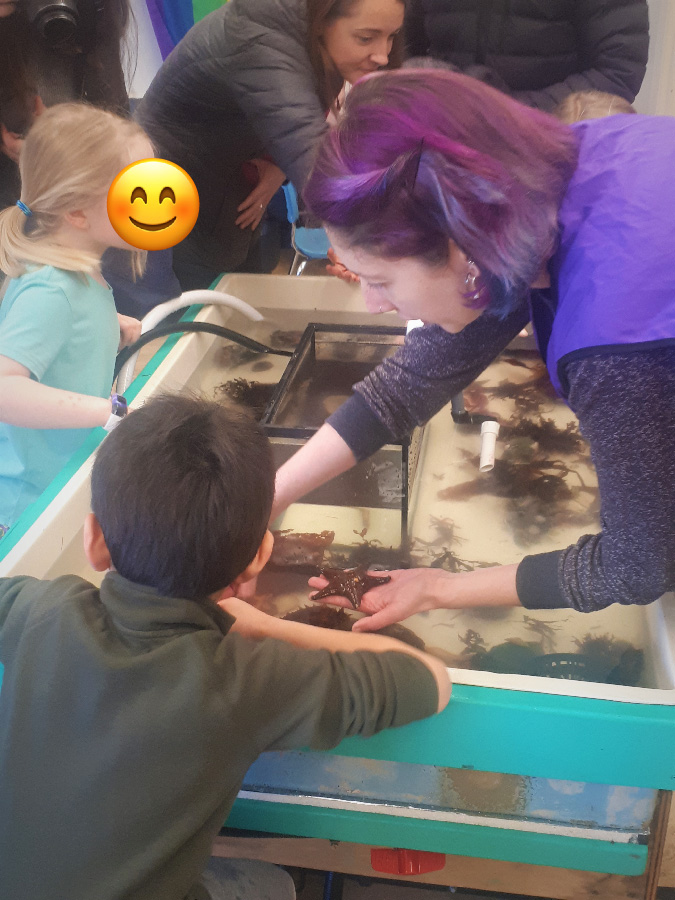
Nanaimo Science Volunteering (2017 – Present)
Community Outreach & Graphic Design
Over the past few years I’ve been involved with the wonderful Nanaimo Science (former NS3), that puts great effort into bringing science literacy and hands-on science activities to children from 4 to 14 years old. I’ve volunteered on the yearly Science Saturday event featuring several local STEM-related community groups and also on the yearly Fall special Spooktacular.
With my background in graphic design I am also responsible for several event posters, monthly schedules, Instagram posts, and other announcements. (2017-Present)
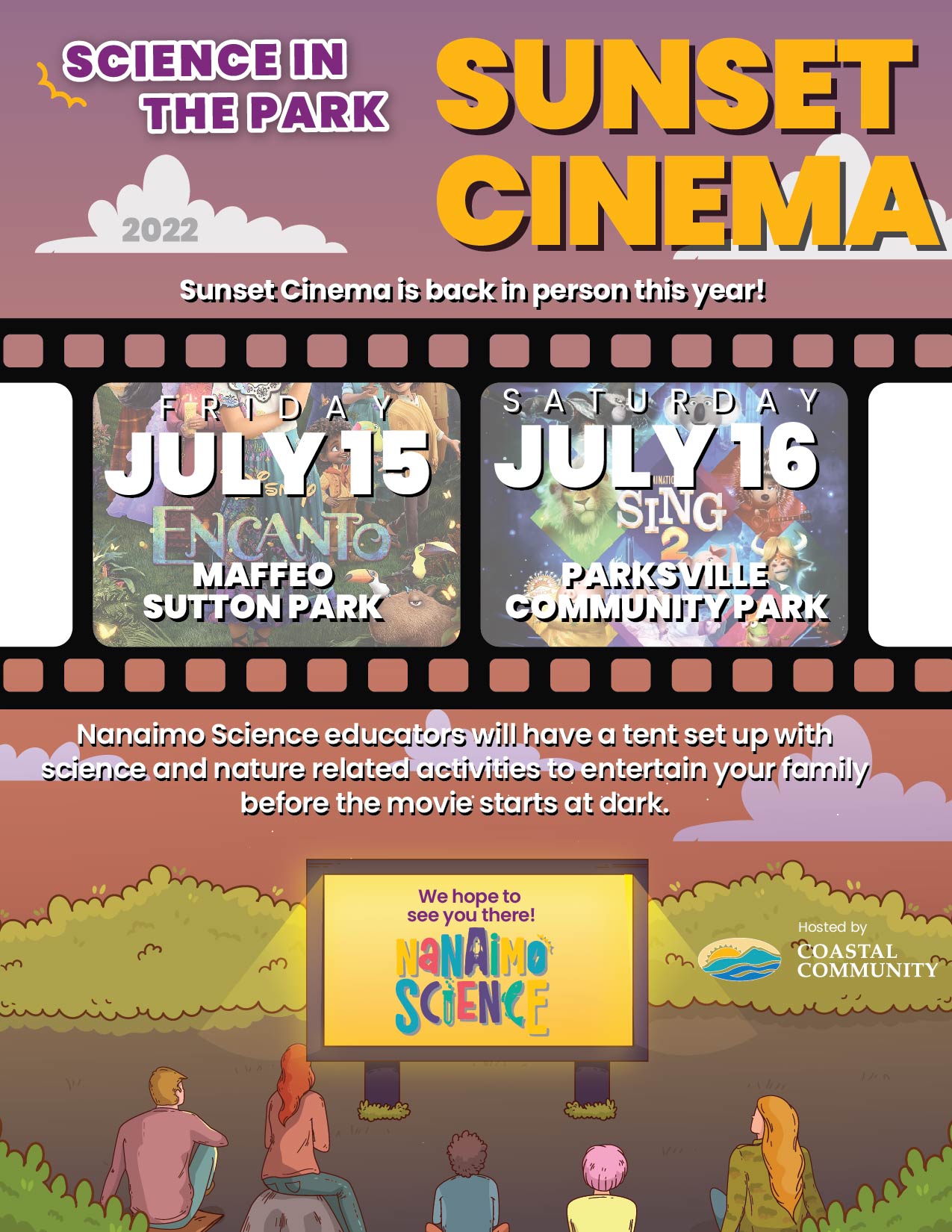

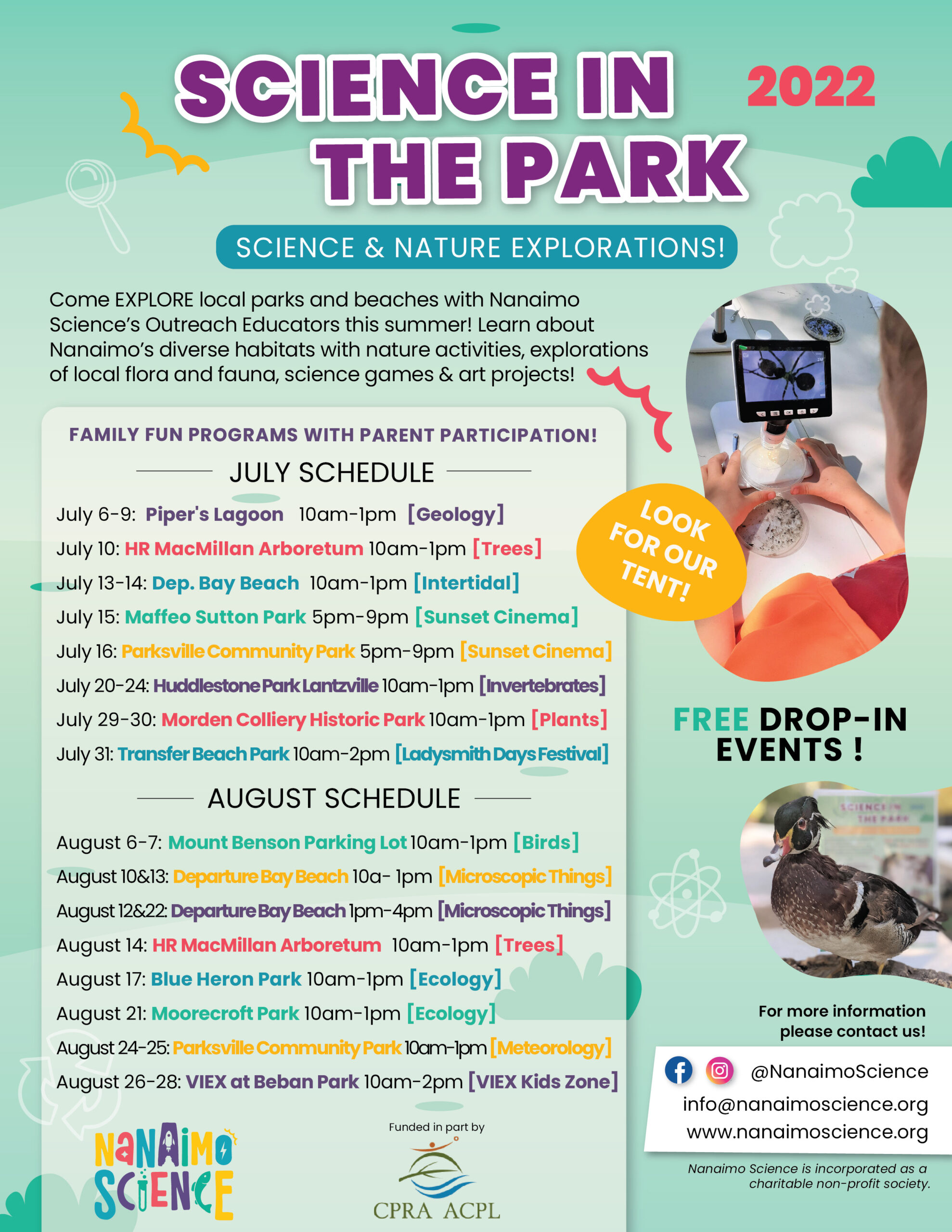
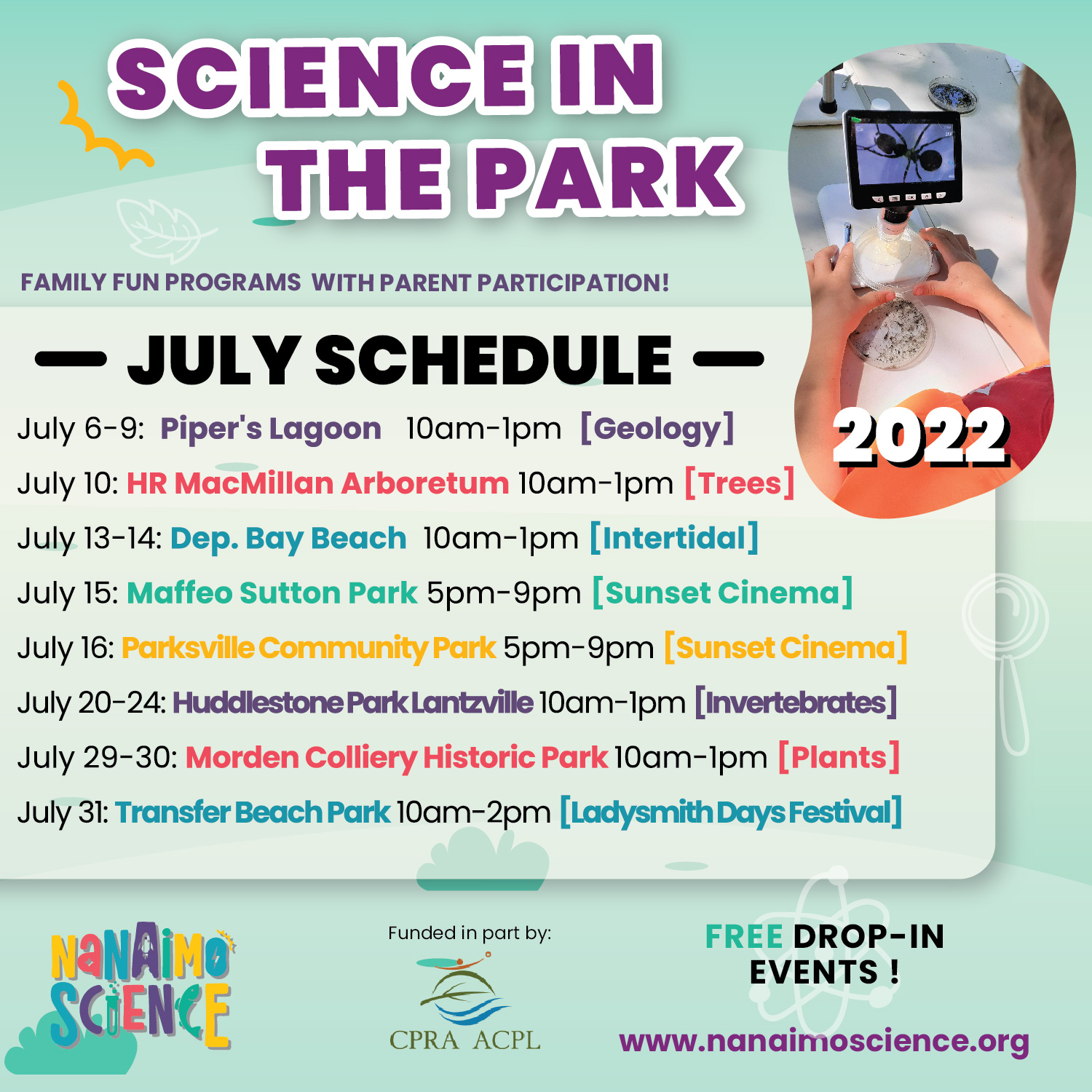
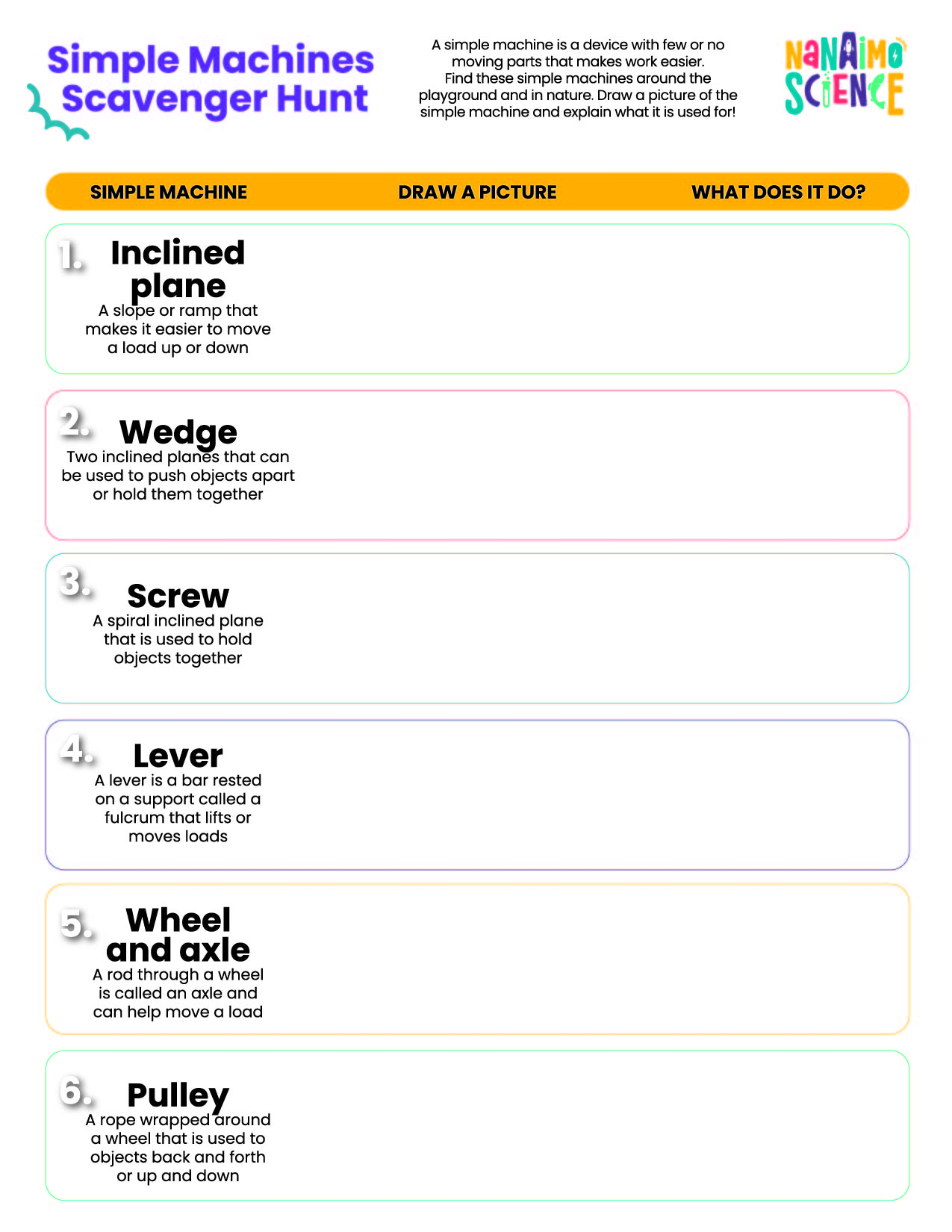
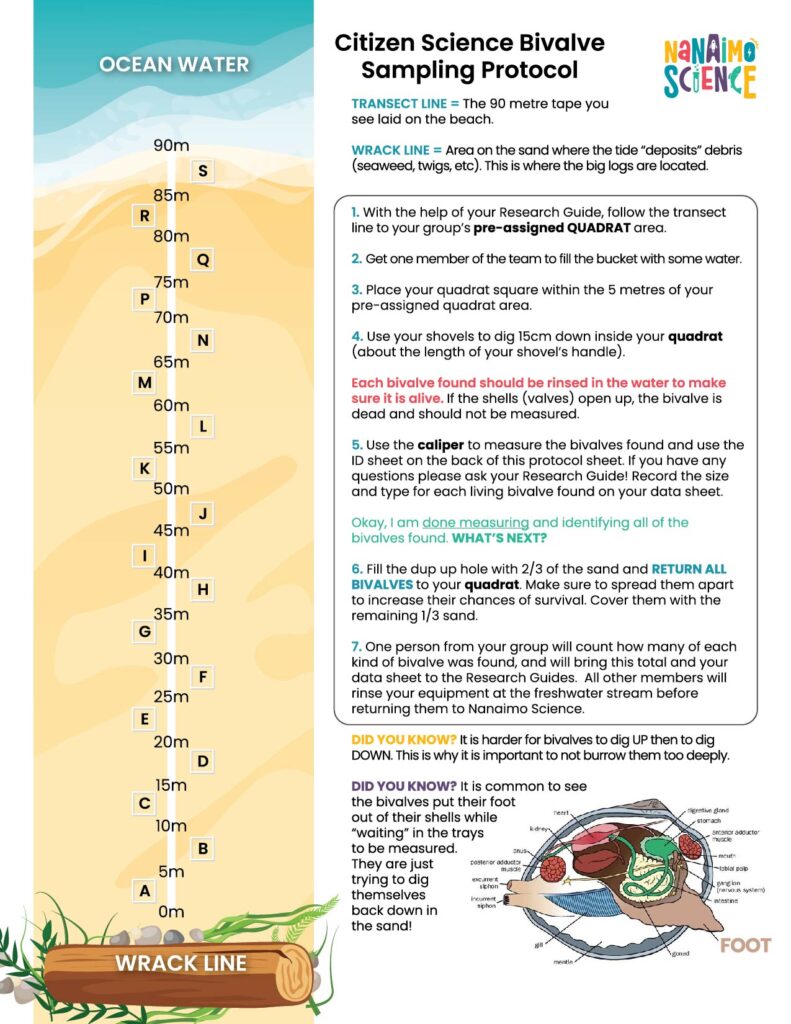
Older:
